Howard Lapides
Christine Grail
Introduction
Streeter Click
Howard Lapides is a storyteller. “I helped him discover his missed calling,” says business partner, Bill Siddons. “He should have been a raconteur.”
“I used to think he only talked,” e-mails Leroy Jones about Lapides. “Now, I see that he tells stories. His stories are lessons, with morals. He dispenses 21st century lore, sometimes cynical, always honest, never off mark. To restate Beat poet, Jack Kerouac, ‘Go read, of Howard, now and learn.’”
Lapides is about media. His favourite adage is the media are 99% business and 1% show. That folksy wisdom is his recipe, his talk and walk, for success.
“If you don’t exist to the middle world,” he told Dr Drew Pinsky, “among managers, agents and publicists, you won’t succeed.” Producers, atop the media food chain, rely on middle world farmers. Talent creates, best, when free ranging.
“Creative fulfilment takes many forms,” says Lapides. “Radio is one. Promoting rock and pop concerts is another. Helping talented women and men build careers is a third.” He knows, having done all three, with plan and much success.
Centuries ago, Lao-tzu said, “Those who justify themselves do not convince.” Shakespeare thought she “Doth protest too much.” Baseball great, Yogi Berra claimed, “If you done it, it ain’t bragging.” Lapides does it, won’t talk past the sale or justify.
This is rare. “Lapides works a phony town and industry,” says David D’Arcangelo. “Yet, he remains genuine, with bona fides; dignity and integrity intact.”
Lapides sees himself as “a disc jockey from Buffalo, New York.” It’s true, of course. Still, this self-image grossly downplays his protean ability.
“Howard knows radio,” says Bob Wood. Wood hired Lapides to host the Buffalo “Bills” post-game show. You’re unlikely to find anyone who knows radio as well as him.
“To this day,” says concert promoter, Harold Levin, of Bass Clef, “Howard is the brightest person in show business. He’s imaginative and successful. Howard is among the best managers and promoters, of all time.”
“If there was no Howard Lapides,” says Pinsky, “there'd be no Dr Drew, period; end of story. He told me what to do. Often, he told me how to do it. I listened, learned and benefited.”
Most telling is the opinion of rivals. A top agent, who negotiated anonymity for his comments, knows Lapides, well, often working with him. Though his words abused, his style praised. The agent always referred to “Howard,” never that so-and-so. When he spoke the word, “Howard,” his tone softened, his volume dropped, if so slightly. In midsentence, he clearly paused before saying the name. What’s unsaid is most revealing. The agent can’t help respect and admire Lapides.
Lapides likes to work live, over lunch, at The Palm. Supposedly, the art of conversation is dead. Monday to Friday, at The Palm, over lunch, Lapides confirms the art of conversation is alive and thriving, in Los Angeles.
In this rare interview, Howard Lapides is at the top of his game. He tells stories, offers insights and gives advice. Most of all, he entertains.
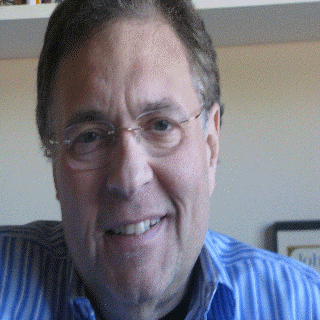
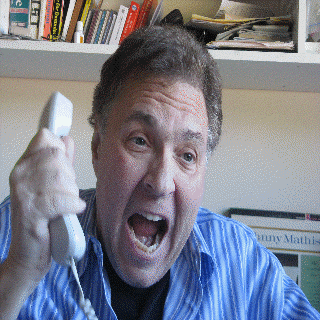
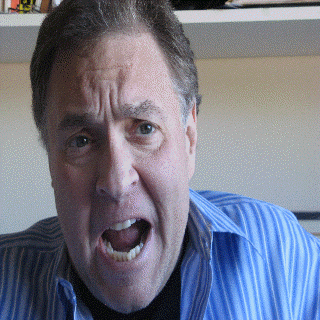
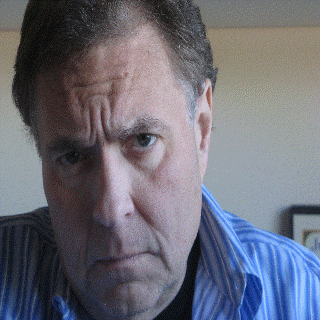
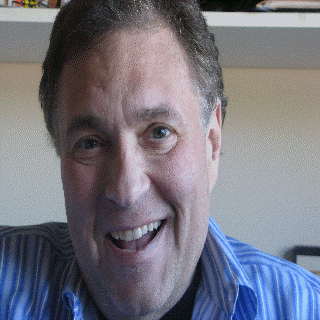
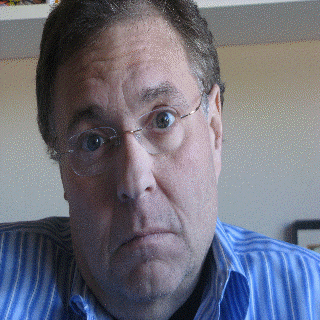
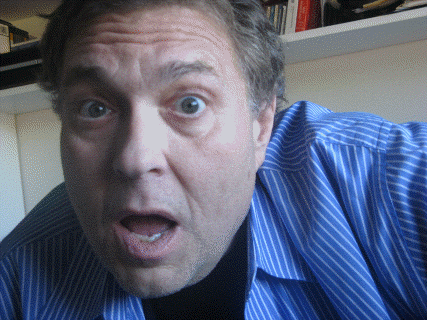

Photographs (c) Olivia Bette Lapides.
Hooked on Radio
GS How did radio get your attention?
HL Growing up, in Buffalo, New York, my mother, Betty, listened to radio, all the time. Somewhere, near her, a radio played, always. Radio was unavoidable.
I remember staring at the radio: listening to the disc jockies (DJs). As a five-year old, I’d hear the voice, but no one was there. How did radio happen?
Somehow, a photograph, a head shot, of a DJ from WGR-AM, made its way into our home. I remember the mike, clear as a bell. Behind the DJ and the microphone, I saw the studio.
I kept turning the photograph over, trying to see more, of the studio and the station. You can’t see behind him. I wanted to know more about radio.
GS Many kids, at the time, were ordering life-size posters, of “The Lone Ranger,” hoping to erase his mask, to see what Clayton Moore looked like. It was much the same for you and the photograph of the WGR-AM DJ.
HL Yes, and about the same time, music began to change. Radio started playing more music. John Rook talks knowingly about this era. Radio was also shifting, from a national to local service, based on music and DJs. New music, rock and roll, was everywhere, all the time.
I fell in love, with that music. By 1959, I was deeply, insanely, in love, with the music. I listened to music, on radio, all the time.
My father, Harry, sold aluminum siding, at the time. The company was American Frontier Industries. He made home siding a legitimate business. His company gave away portable radios, to drum up business. If you listened to his pitch, you got a portable radio, free. The radios cost was maybe thirty-eight cents. Many people took him up on his offer.
I listened to music on one of these radios. If I lost the radio or it broke, my father brought me another one. I went through these transistor radios, one after another.
GS Wasn’t your family is the backyard pool business?
HL Yes, my father designed an above ground swimming pool. He started Kayak Pools to sell his design. Kayak grew into the largest company, of its kind, in the world. We sold the business, in 1980, shortly after my father passed away.
GS Aluminum siding and backyard swimming pools seem a long way from radio.
HL Yes and no, the success my father achieved allowed my mother to stay-at-home. When my mother was home, the radio was on. The more radio I heard, the more it intrigued me.
GS What was the next step, for you and radio?
HL One day, for many reasons and no reason I recall, I started playing radio, in my room. I built a studio. The wall was my audience.
My studio had one turntable, a mike and an old RCA cassette recorder, with eight-inch by four-inch cassettes. Can you imagine an eight-inch cassette? I got a four-channel Olsen mixer to blend the voice and records on to cassette.
One turntable meant I had to do something, as I changed records. I talked. I talked about records, the weather and what I heard DJs, on the radio, say.
Some friends thought this was cool, and wanted in. Ray Goldsmith converted a bedroom, which his late grandmother used, into a studio. Ben Friedman got his father to build a radio studio in the cellar of their home. We played radio, all the time.
Almost from the start, Ben collected jingles. Some people collect air checks. Ben had jingles. Over the years, he bought some of the largest jingle companies, in the USA.
First Radio Job
GS How did you wangle your first job in radio? I read you were 16 years old, at the time.
HL We, Friedman, Goldsmith and I, played radio, constantly. Each day, after-school, on holidays and, especially, weekends, we’d play radio in the cellar of the Friedman home. We did that for years and years and years.
Then, I noticed WYSL-AM, probably in 1966. The original WYSL-AM was a McLendon station. McLendon is an alternative spelling of "creative" or "imaginative," when applied to radio.
GS WYSL-AM has a story, I think.
HL Long after I worked WYSL-FM, it became rebel radio, of sorts. It was WXBX-AM, for year or two, around 1990 or 1991. Then it became WGKT-AM, for a year or two. Today, it's WWWS-AM, "Sold Gold Soul," I believe.
When McLendon bought WYSL-AM, in 1960, it used a Beautiful Music format. The company wanted to bring its KABL-AM, San Francisco, format to industrial Buffalo. It didn't work. Many formats were tried, but rock and pop got WYSL-AM the most attention, especially from me.
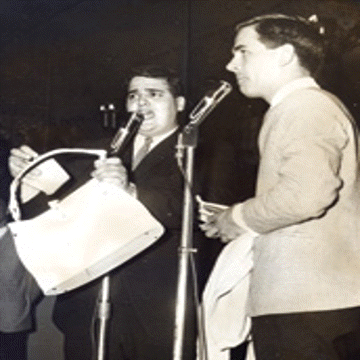


I grew up listening to WKBW-AM, Dan Neaverth and Joey Reynolds (above) as well as dozens of other famous DJs, such as Rod Roddy, the late announcer from "The Price is Right" -- 'Come on Down.' Neaverth did PM Drive, Reynolds did evenings; two fellows from South Buffalo, living their dream. The Neaverth to Reynolds "hand off," at 6:55 pm, every night, is legend; a huge audience tuned-in only to hear the hand off. Reynolds and Neaverth had a hit record, "Rats in My Room," in 1964. (Left, Reynolds and Neaverth host an event, winter 1965. )
WYSL-AM changes format. Now, there's competition, for WKBW-AM. I listened to both stations, religiously.
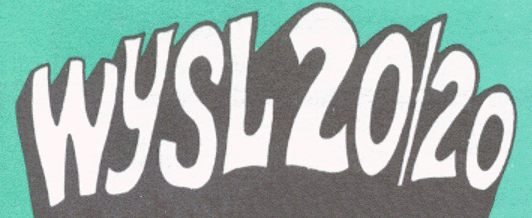


One day, a DJ, on WYSL-AM, says, “If you’re a teenager,” and you’re interested in working at this radio station, come down and apply.” The station was miles from my home. I was in the station foyer before the DJ finished.
You had to be 16. I was 15. My birthday is in December, and this was June, I think. I lied about my age. Nobody cared. There was no Al Qaeda, no threats, imagined or not. What are a few months among friends?
GS Did WYSL-AM offer a job, of any substance? Did you have to vacuum?
HL I, we, there were a bunch of us, carted instant song-requests, as volunteers. A listener would call WYSL-AM, asking to hear a specific song. Often, listeners asked for less popular songs, which weren’t on the station playlist. I’d grab the 45 rpm, record it to cart and deliver the cart to whoever was producing the on-air show. This was a labour-intensive promotion.
Listeners sensed WYSL-AM was responsive, spontaneous. For Buffalo radio, it was a fresh idea. For McLendon, it was applying what worked in Dallas and Denver.
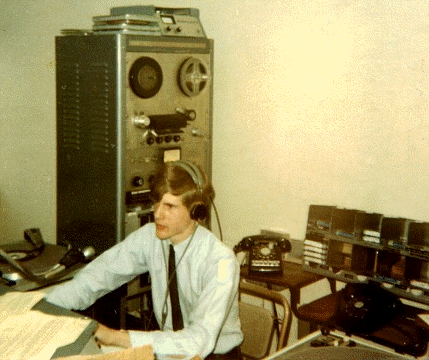


I did that for a long-time: it was a rush. I hung out at WYSL-AM when I wasn’t carting. One day, the programme director (PD) says, to everyone and no one, “If you want to make $2.50 an hour, go down the hall, into the WYSL-FM studio. We’ll put you on the air.” That’s what I did; so did Ben Friedman and others. (Right, Ben Friedman, on the air, in the WYSL-FM studio, in 1966. Click to enlarge.)
GS There must be more back-story.
HL Yes, it almost seems as if the Federal Communications Commission (FCC) put me on air. At the time, many companies owned an AM and an FM station in the same market. Yes, today, a company may own six or eight stations, in one market. In the 1960s, the FCC allowed only one AM licence and one FM licence, in one city and for one owner.
FM offered a clean, clear and full sound, but was an orphan band. No one knew how to use FM. It was either Montivani and the Harry Simeone Choral or simulcast.
Profits were high on AM, and steady. Most companies, with an AM-FM combination, simulcast AM content on FM. Anyone, with an FM receiver, and there weren’t many, heard a better quality simulcast of whatever was airing on AM.
The goal was to get an FM licence. Then hold it until someone figured out what to do with the frequency. That’s where the FCC came into play.
In the middle 1960s, the FCC cut simulcasting in half. The ruling limited simulcasting to 12 hours a day; any 12 hours a station chose. Original content had to fill the other 12 hours.
The FCC ruling was for stations in the top fifty markets, only. Suddenly, several hundred FM stations had to fill 12 hours, seven days a week, with distinct content. Buffalo was a top fifty market. Thus, the $2.50 an hour DJ, at WYSL-FM, and the career break for me.
GS You were on the air at 16.
HL Yeah, it was cool.
GS How long did you do that?
HL I did that job for a year, maybe, on weekends and after-school. We worked out our own shifts. Someone became PD, but not me. I had no responsibilities. It was exciting.
We were kids, at WYSL-FM. One of us was Kevin O’Connell: he did weather on KNBC-TV and KCBS-TV, in Los Angeles; he returned to Buffalo television, a few years ago. Tim Kelley, who helped start Premier Radio, was also a WYSL-FM DJ.
It was fun. We had no pressure, few hassles and much autonomy. We’d have done it free; $2.50 an hour was icing on the cake.
GS Did you work, on air, as Howard Lapides?
HL No, I needed an alter ego, an on-air name. It was also a fad, to have an on-air name. Larry Blankenburg drove a Corvette paid for by his on-air name, “Larry Lujack.” I figured success meant an on-air name.
After pondering, for five seconds, maybe, I decided on “Jay Richards.” The name, for a 16-year old, had a radio ring. That was my radio name for many years, Jay Richards.
GS What did you learn then from your first time on the other side of the radio?
HL Yeah, what’s on the other side of the picture, the picture of the DJ from WGR-AM? Strange, how early experiences affect our lives. All these years later, I answer the question.
At WYSL-FM, I learned basic mechanics. I learned how to be on air, a DJ, without fear. It’s not easy. In those days, we got away trying whatever we wanted. We copied everyone. We worked, hard, to find our voices, our on-air characters.
We each found a voice, a character. If you didn’t develop, you went nowhere. We did, in one-way or another.
GS I recall WYSL-FM changed calls letters, in the late 1960s.
HL Yeah, it changed to WPHD-FM. The station was trying a progressive or Underground-type format. It was similar to KSAN-FM, in San Francisco, which Tom Donohue started. Renaming WYSL-FM to WPHD-FM, a basic move, made the format change smoother.
GS Did you work the new format?
HL No, I didn’t. When I came back from Emerson College, for the summer, I hoped the more popular WYSL-AM might hire me. It did.
A famous PD, Hal Martin, helmed the station. He hired me, as I hoped. Martin, in fact, was Michael Spears.
Over the years, Michael Spears was PD at KHJ-AM, in Los Angeles, and KFRC-AM, in San Francisco. Spears had worked for McLendon, in Dallas, which is the supreme big-time. When I came looking for a summer job, Spears had recently arrived, at WYSL-AM, from “The Big 8,” CKLW-AM, in Windsor, Ontario.
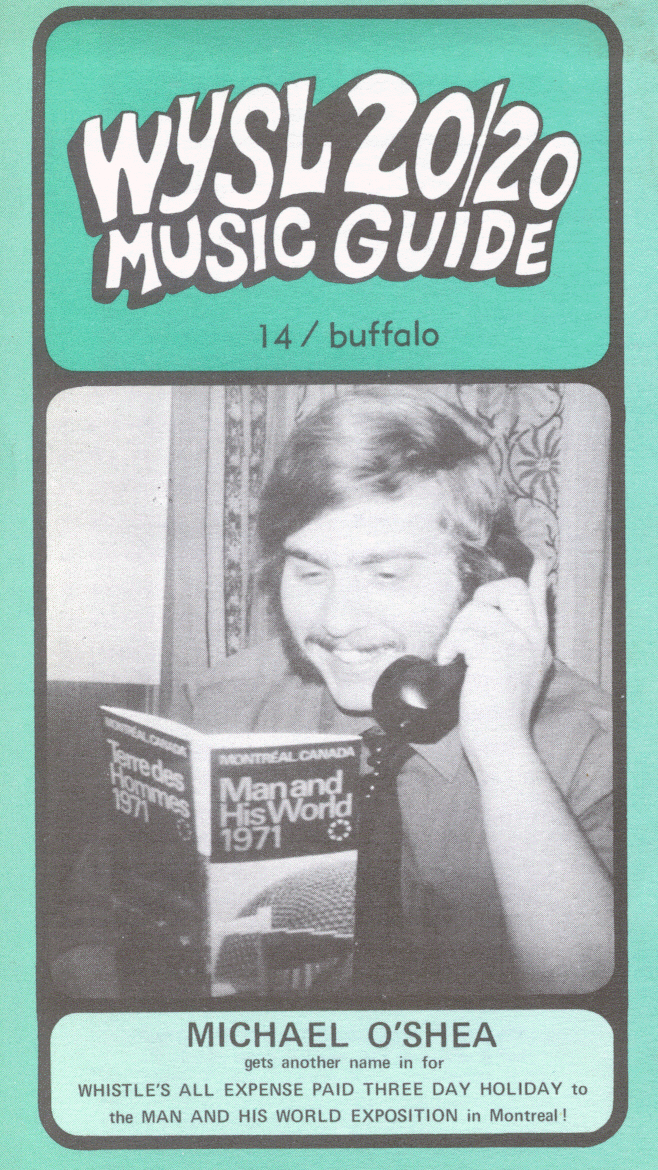


Think about it. I’m on vacation, from Emerson. I’m looking for a summer on-air job. The top PD, in the USA, hires me, on the spot. What a rush. WYSL-AM was my summer job, for three years.
Emerson College and WEIM-AM
After high school, you enrolled at Emerson College, in Boston. Why did you pick Emerson?
HL Well, I read Emerson brochure. Seemed, to me, at Emerson you didn’t have to do anything. I sent a cheque, which didn’t bounce. Emerson admitted me. I was a first year student, in Speech and mass communications.
No, I kid Emerson: it’s a great school, no cakewalk and the best broadcasting programme. I’m on the Emerson Board of Overseers. I’m proud of my Emerson College education. My wife, Maria, is also a graduate of Emerson.
I wanted a Liberal Arts education. For a media or show business career, a Liberal Arts education is best. Emerson made it possible to continue radio, too.

GS Any notable classmates at Emerson College?
HL Jay Leno was in my class. He hadn’t started using “Jay.” He was Jamie Leno. Geoff Fox was also a classmate, but we’ll get to him soon enough.
GS Weekends, you worked WEIM-AM, in Fitchburg, MA, didn’t you?
HL I did. Jim Conlee was a friend. He was a year ahead of me at Emerson. He got a job at WEIM-AM, in Fitchburg, a small-town, north-west from Boston, about 45 minutes.
Conlee left school when he got the job. He said, “I got afternoon drive (PM Drive). I don’t need school.”
I asked him how I might get onto WEIM-AM, too. I’d leave school to work radio in the Boston area. Conlee had me come to Fitchburg, with my tapes. The WEIM-AM PD, Mike Ivers, listened and gave me a job, weekends, on WEIM-AM.
Suddenly, I’m Jay Richards, again, on Saturdays and Sundays. Jay Richards was still comfortable for me. WEIM-AM and Emerson: it was teen DJ nirvana.
GS Didn’t you also work as “The Frogman,” about this time?
HL There’s no escaping that one. It always comes up. Here’s the story.
I was a PD in the Boston market. I was PD at WERS-FM, one of the Emerson College stations. Today, WERS-FM is one of the top college stations, in the world. Twice I was PD, of WERS-FM, in my junior and senior year.
Charlie Buckowski was a DJ on WERS-FM. I gave him his radio name, “Flying Floyd Wright.” He’s a good friend, and, I hope, still on the air, somewhere.
Flying Floyd was a music hound. He wanted to do an oldies show. In 1969, there were few oldies shows, as we know the format, today.
Let me add something here. An oldies show uses music that’s 20-to-50 years old. Today, that’s music from the 1950s to the 1990s. In 1969, oldies meant music from before 1950, as heard on stations using an Easy Listening format. An oldies format provides music from the younger days of a listener group. These listeners are usually over 40. PDs think all they want to hear is overly familiar music. Flying Floyd wanted to use music from the 1950s and 1960s, which, at the time, was almost current.
I liked his idea. We did it, on WERS-FM. We decided to call the show, “We Rockin’.”
Joel Zelle joined “We Rockin’.” He did a take-off of “Cousin Brucie,” from WABC-AM, in New York City. Joel called himself “Cousin Goosegrease.” Zelle has worked WJR-AM, in Detroit, for years.
Floyd did Floyd, which, in retrospect, is interesting. I did a take-off of “Wolfman Jack,” the legend of DJ legends, calling myself “Frogman Jack.” Bob Smith, aka “Wolfman Jack,” had a husky, gravelly voice, much as someone who has a frog stuck in his throat, bronchitis or both.
We, Joel, Floyd and I, did “We Rockin’” on Saturday night. The show got some traction. Listenership often topped 100 people.
GS Wow, that’s a lot.
HL Yeah; yet I think, between us, we had more than 100 friends. There was something fishy in the ratings. Wish we had “People Meters” in those days.
Stranger still, a few years ago, out of nowhere, I received a CD, in the mail. On the CD is a full show of “We Rockin’.” The fellow, who sent the CD, said he was a big fan of the show. He tracked us all down, sent the CD and vanished.
GS It was a kind gesture.
HL It was good of him. It was great, yes, and, of course, I’ve lost it. No, wait, I have it somewhere. I’m sure it’s in one of these piles. Hunter, will you check that pile, in the corner?
Others, too, thought I did a great impression of “Wolfman Jack.” During the summers, I worked WYSL-AM. One weekend, the station ran a special on-air promotion: the Top 300 hits of all-time, I think. During one of my shifts, I slipped into the “Frogman” character; it fit. The PD liked the voice and the character. “Stay with it, the rest of the weekend,” he said.
I didn’t go much further, with the “Frogman.” The voice hurts the vocal chords. I don’t know how Bob Smith did “Wolfman Jack,” for thirty-five years, but he did it. Smith was original and the greatest.
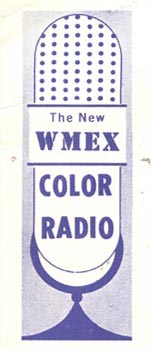


WMEX-AM, Boston
GS You produced Steve Fredericks, at WMEX-AM, in Boston, while you were at Emerson College. How did that come about?
HL That story is Geoff Fox, Paul Brownstein and I went to Emerson at the same time. Fox wasn’t into school. When he found out I worked WEIM-AM, in Fitchburg, he was all over me to get him a job.
We’re at Olsen’s Electronics, a Boston store. This is before I got Fox a job. He says to me, “I’ll owe you, anywhere, whatever, I’ll owe if you get me an on-air job.”
At the time, Fox was producing Fredericks, at WMEX-AM. He wanted on-air, bad. The pain of not being on air showed on his face.
I say, “I’ll get you a job and you’ll owe me a job: right?” Fox agrees, in a heartbeat. I got him a job at WSAR-AM, in Fall River, a small Massachusetts town. The same company, Knight Quality Broadcasting, owned the stations in Fitchburg, where I did weekends, and Fall River.
I'd have no career, without Howard. He got me a radio job, at WSAR-AM, in Fall River, MA. The station was at the end of a large marsh, with a huge power plant in the distance. It was quite simply heaven on Earth, for me, at the time.
Geoff Fox
WTNH-TV
Hartford, CN
Instantaneously, Fox gives notice at WMEX-AM. In thirty days, he’s gone, but recommends me for his job. WMEX-AM makes me an offer, I accept and Fox is even, with me: all in thirty days.
By the way, Brownstein ended up producing Jerry Williams, at WBZ-FM.
GS That’s the makings of a legend. WMEX-AM was an infamous station.
HL Yes and yes, anyone who worked that station could write a book about it.
GS Was WMEX-AM as chaotic as legend suggests.
HL Well, it was a crazy place. WMEX-AM was on Broadway, in the middle of the Boston “Combat Zone.” Hookers, drug dealers and pimps all over the place, peep shows, too, strip joints and illicit acts. Name any vice, it was readily available in the Combat Zone.
GS I think of the Combat Zone as a hardcore Alice’s Restaurant.
HL There was gunfire, most weekends. I’d look out the station window. Police officers were holding men and women at gunpoint.
The Boston Combat Zone has been gone for many years. Developers converted the area, which is next to Chinatown. High-end retailers, condominiums and offices replaced the hookers, who plied their trade, openly. The pimps wear three-piece blue pin stripe suits, today, have plush offices and drive leased BMW 600s.
GS Boston’s a city of contradictions.
HL Right, at night, the Combat Zone was dangerous; someone knifed a Harvard student to death, not far from WMEX-AM. In the daytime, the same area is part of the “Freedom Walking Trail,” a huge tourist trap, populated by little old women, with blue hair, and families pushing strollers.
GS I remember it well.
HL WMEX-AM was only two subway stops from where I lived. In a flash, I was off the train, up the stairs and into the station. I had a false sense of security.
GS Steve Fredericks is something of a legend.
HL Yes, it was an experience working, with him, at WMEX-AM. I recently discovered Fredericks working in Philadelphia. He has great radio skills, a natural.
Fredericks came to WMEX-AM, in Spring 1967, to replace Jerry Williams; after six years, he had enough of Mac Richmond, who owned the station. Dick Summer did AM Drive for a while. Charlie Tuna preceded Fredericks, for a time. Larry Glick followed Fredericks, doing 1 am to 6 am, music and talk. Ina few months Tuna and Glick were gone, too, both had enough of Richmond.
Before Boston, Fredericks did play-by-play for the Philadelphia 76s. He was about 30, when I met him, with tons of experience. Fredericks could interview anyone; he made everyone interesting.
His show ran 11 pm to 2 am, Monday to Friday. I prepared the show, in the late afternoon, went home for a nap and came back for 11 pm. I never made an 8 am class, after I got the job at WMEX-AM. I continued to work weekends at WEIM-AM.
GS Burning the candle, in all places, not only at both ends.
HL Yes and no, radio is never work. It’s all fun, all the time. Radio is always a great time.
GS How did you contribute to the Steve Fredericks Show?
HL I don’t know. A publicist, pushing a book, for example, would call me up. She or he would ask if the show could use the author. I’d agree, book a time and wait for another publicist to call. Guess my contribution was playing along, with publicists.
I was a radio sponge, of sorts, at the time. As a result, I learned much from Fredericks. I learned about his rhythm, which was exceptional. I learned what evoked a response, in him and his listeners, why and how.
GS The show was a success.
HL Yes, surprisingly because the WMEX-AM signal was horrible. You heard the station here and there, in Boston, not everywhere and rarely at consecutive traffic lights.
If you’re at the corner, of Berkley and Boylston, in centre town Boston, you hear the station, clear as a bell. Move a few blocks east, say, to Marlborough and Arlington, and you can’t hear WMEX-AM, for love or money. Every ship, at sea, heard the station, though.
WMEX-AM was a 50,000-watt radio station, but its signal pointed out to the Atlantic Ocean. Radio signals point north, north-west, northeast or maybe due north. As luck and the FCC had it, WMEX-AM pointed northeast, out across the Atlantic Ocean.
The FCC protected a signal from New London, in CT. WMEX-AM couldn’t duplicate the signal, of the New London station. Mac Richmond, who owned WMEX-AM, had one choice, out to sea. He took what he could get, and found some success.
The irony is when Mac passed away, his funeral was in New London, CT. He’s buried less than a mile from the transmitter that caused him problems. His grave is in sight line from that transmitter.
The competition was fierce, too. By mid-1968, Jerry Williams and Larry Glick were on WBZ-AM, a powerhouse, clear channel station. WBZ-AM got first dibs on guests because of its signal. Still, Steve Fredericks held his own and kept WMEX-AM competitive.
GS Mac Richmond is a radio legend.
HL Yes, Richmond owned the station and two others. Mac liked me. He hired me. Mostly, he called me “kid.”
Mac is a legend, if only because so many top DJs went through WMEX-AM. Larry Lujack, Dick Summer, Arnie Ginsberg, Dan Donavan, Bud Ballou, Charlie Tuna, Larry Justice, Jerry Williams, Larry Glick and a great many others worked the station. Mac knew how to hire, but not keep talent.
The job at Geoff Fox WSAR-FM, all those years ago, propelled his career, not just mime. When Geoff left Emerson, he worked Fall River and Providence; when Tom McMurray moved to WMTB-AM, in Charlotte, NC, he took the talent with him. Eventually, Geoff Fox ended in Arizona and then he did the morning show on WPEN-AM, Philadelphia.
I heard of a television opening, on the Buffalo, NY, version of “PM Magazine”; I told Geoff of it, he applied and got the job. He was the co-host of “PM Magazine” for two or three years. Then he started doing weekend weather. That’s how he trained as a weather presenter and found his way to a Connecticut station, where he stayed for nearly thirty years.
GS Until he became too expensive.
HS Now he freelances out of his basement in Irvine, California. He has a unique way of doing weather, all over the world. It will catch on sooner than later.
GS Do you have a Mac Richmond story or two?
HL Who doesn’t have a Mac Richmond story?
GS That’s bizarre. He lives on in infamy.
HL Yes, but I suspect Mac was nuts, anyway. He played poker every night of the week. He’d call his own hotline to make song requests. In my booth, there was a “Mac Richmond Phone.” Every night he’d call. Mac would complain about Fredericks, the guests and the callers. He was consistently upset, with everyone on air, at WMEX-AM. He thought he could do better. He told everyone he could. He never tried that I know.
GS Did he take records, from the station library, home?
HL Probably, but I can’t be sure. He built a gorgeous talk show studio. It was the biggest, in town. A huge desk. We could seat five guests, each with a microphone. We always had people come in and watch the show.
I remember meeting Jane Curtain, one night. She was on “Saturday Night Live” and other television shows, such as “Kate and Allie” and “Third Rock from the Sun.” She’s from a proper Bostonian family.
At the time, Curtain hung with writers from a street paper called, “After Dark.” Journalists, from that give-away weekly, were the hippest in Boston. They’d come to watch Fredericks, all the time; hangout and, I think, do illicit cereals.
In those days, and for about two weeks, I enjoyed snuff. It’s hard to believe, I know. Snuff is a smokeless tobacco that’s scented or flavoured. You inhale snuff, directly into the nose. My favourite was the bourbon flavour, from American Dry Snuff.
GS The WMEX-AM talk studio seems superb.
HL Maybe the best in Boston, at the time.
GS Do you have any idea about the background of Mac Richmond?
HL Well, some; originally, he sold furniture, in Washington, DC. He bought WPGC-AM, in DC. Guess that station made enough money for him to buy WMEX-AM, in Boston. Then he bought or started a small station, KDOX-AM, in Henderson, Nevada.
Today, Henderson is part of metro-Las Vegas. When Mac bought KDOX-AM, the town was 25 miles south, of Vegas, on the I-95. People wondered why he wanted the station.
GS Maybe Richmond had a vision, similar to Bugsy Segal: a city about to expand, massively.
HL I think the expansion, of Las Vegas, and ensuring wealth was on his mind. It’s a vision he didn’t live to see.
GS Dick Summer suggested Richmond bought KDOX-AM so he could get a tax write-off for his frequent trips to Vegas casinos.
HL Probably, as I said, Mac played poker every night. This brings us back to his nighttime phone calls, to me, during the Fredericks Show.
Mac usually called around 12:30 am. He’d complain about the show. Then he’d say, “Kid, between 1 am and 1:30 am, run a Columbia Pontiac spot; between 1:30 am and 2 am run a Star Pharmacy spot. Don’t log either one.”
His purpose was obvious. He was playing poker, with the owners, of these businesses, and losing. Instead of making good, with cash, he used spots on WMEX-AM.
GS That’s worse than taking home records from the music library.
HL Boston is major-market radio and he’s trading spots for gambling losses.
GS That’s a great story. Do you have another Mac Richmond or WMEX-AM story?
HL Here’s an ironic story. Before Boston city elections Max, everyone called him Mac, but it was Max, had the sales staff selling special ten-minute blocks, of on-air time, on the Steve Fredericks Show, to the candidates. The price was a stiff $500 for 10 minutes. That’s $50 a minute, in 1972, but it was the night before voting.
GS A few years earlier, you were earning $2.50 a hour as a DJ! How did this buy work?
HL The candidate, say, Don Vahey, joined Fredericks. They’d talk about city politics, his platform and other stuff. Listeners got the impression the interview was legitimate and newsworthy.
If we scheduled a candidate for, say, 1:30 am, that was five or so hours before voting started. There were many all-night workers, in Boston; many listened to Fredericks. They might hear a candidate, like what they heard and vote for him or her on the way home.
I’d know, in advance, which candidates were doing the show. I’d research softball questions. It was only ten minutes and easy to make everyone happy.
My booth was at street level, as was the studio. There was a glass door, fronting on Washington Street. Someone would knock, on the door. I’d check them out, from my booth. If she or, most often, he seemed all right, I opened the door.
One night, before voting, there’s a knock on the door, a little after midnight. I look out. This fellow says, through the glass, “I have Louise Day Hicks, in the car. She’s doing the Steve Fredericks Show.”
Louise Day Hicks was a visible politician, in Boston. She was always running for one office or another. In this election, I think she was running for mayor against the unstoppable Kevin White.
The fellow, on the street, says, “We want to come in and be on the air.”
I open the door and say, “Unfortunately, we prebook the show, and there’s an honorarium.” I said the word honorarium! “You have to make arrangements in advance.”
The fellow, fronting for Hicks, diggs into his pocket and says to me, “Put out your hand.” I put out my hand. He starts placing $100 bills on my palm. When I have ten $100 bills, in my hand, the fellow asks, “Will that work?”
I say, “That works. Bring Ms. Hicks into the studio. She’s on next.”
GS A spot, on the show, just opened. A scheduled guest hasn’t arrived.
HL Yep, but the show was never fully booked. There was always room for one more candidate. Suddenly, she’s on the air, doing her pitch to Fredericks.
That night, Mac was upstairs, in his office. He comes rushing down, into my booth. “What the ...,” he starts saying, as I plop the ten $100 bills, in his hand. After that, Mac referred to me as, “My son.”
GS At the foot of the employer, I guess. Did Hicks win?
HL No, but my quick thinking did. From then on, I couldn’t shake Mac. He was always in my cubicle, talking to me. I was the WMEX-AM star, for ten minutes.
During the summer, I went home, to Buffalo, and worked WYSL-AM. First day back, at WMEX-AM, in the fall, Mac comes to my office. He sits down, on the other chair, and says, “I want you to tell me everything you learned at WYSL-AM. Everything, and start now.” He wanted ideas he could use.
GS Mac Richmond was a character, that’s for sure.
HL Yes, but let me wrap up the story. Fast-forward years later, to when I meet my wife, Maria D’Arcangelo. She’s from Boston.
As we’re getting serious, I fly, with her, to Boston, to meet her family. Her father, Tony, worked in and around politics. We talked about his experiences. He tells me he worked for Louise Day Hicks and mentions, because I said I’d worked radio, he’d taken her to “that” radio station, one night, years before.
GS No way!
HL I swear to gawd, that’s a fact. If Tony D’Arcangelo were alive, today, he’d confirm it. Oh, that was just crazy. I tell him it was I!
GS Ah ha, obviously was a memorable sign though. Do you have another story? I’m greedy.
HL WMEX-AM, with its rotten signal, struggled all the time. Somehow, Mac managed to hire, in short bursts, most of the top radio talent, of the day. “Superjock,” Larry Lujack worked WMEX-AM, as did Dick Summer, Charlie Tuna and Dan Donovan, talkers Jerry Williams and Larry Glick and many, many others.
I say short bursts for a reason. At first, weekly cheques, for the big names, arrived on time. After a month or two, their pay cheques regularly disappeared, for days or weeks, at a time.
Talker, Jerry Williams, used to arrive extra early on Fridays to corner Mac and get his pay. Williams was making so much money, Mac felt he could earn significant interest, on the salary, by holding it, even for a few days. There are stories about Williams chasing Richmond down Washington Street, on Fridays, to get his pay.
GS Williams didn’t see any humour in chasing his pay cheque down Washington Street. Everyone else did, though.
HL Mac used some good, if borderline ploys. WMEX-AM struggled, day in and day out. Illicit tactics were all Mac could afford, I guess.
Keep in mind, the WMEX-AM is music during the day. All the talk shows are on in the evening and overnight. Richmond hires talkers, such as Fredericks, and DJs, such as Arnie “Woo Woo” Ginsberg, Lujack and Dick Summer.
Mac ran ads, in “Billboard,” “Cash Box,” “Record World” and other trade magazines, looking for talent. His ads mentioned a “top 10 market, on the east coast” needed, say, a DJ for PM Drive. For most DJs, this was the honey pot. His advertisements got much attention.
Usually, DJs sent a “scoped tape.” Scoping removes whatever the DJ, who’s applying for the job, didn’t voice. The unscoped tapes gave Mac an hour or more, of the music, talk, jokes, spots and promotions on a station.
He’d hire high school students to transcribe the unscoped tapes for use on WMEX-AM. The station had top creative spots and DJ talk, all the time, free. There were rumours of a black binder, containing all this material, but I never saw it.
GS Interesting strategy and, in a way, creative, I think. Who worked WMEX-AM, when you were at the station?
HL DJ legend, Arnie “Woo Woo” Ginsberg, had just left, before I arrived. Ginsburg worked evenings. He did the show that lead into Fredericks.
Ginsberg used cowbells, horns and an old hotel bell, for emphasis. He was constantly in high gear, loud, brash and number one. I have his hotel bell, today – ring, ring; he left it behind. I took it.
The late Bud Ballou was also at WMEX-AM, when I worked there. John H. Garabedian, who may still own a station in Framingham, was on air, in those days, and Ron (Polcarie) Robin, too. TJ Martin was doing AM Drive, at WMEX-AM.
GS TJ Martin doesn’t ring a bell.
HL At one point, so goes the myth, TJ married Grace Metalious. She was Marie Grace de Repentigny from Manchester, NH. “Peyton Place,” her controversial novel about incest, topped best-seller lists in 1956. The 1958 movie, starring Lana Turner, was scandalous. The much watered-down television version, in the 1960s, gave Ryan O’Neal and Mia Farrow their big breaks.
GS There’s an urban myth about her buying a quart of milk, at a corner store, with her first royalty cheque, of $125,000, and asking for change.
HL That’s funny. In 1956, $125,000 was a lifetime of earnings. It’s probably $20 million or more, today.
TJ wasn’t with Metalious long. They married, maybe, for a few months or a year between her divorce and remarriage to George Metalious. Still, she was his big calling
TJ Martin was one of those DJs, who worked a great many radio stations, mostly for brief periods. It seems as if he worked a thousand stations.
GS He was a radio nomad.
HL Yes, I’d say so. I have another WMEX-AM story. It’s about my cubicle, which Mac called my office.
I’m producing a top show. I share my office, with the Coke-machine. There were a couple of chairs, too, and the DJ mailboxes. If you watch “Mad Men,” the office copywriter, Peggy Olson, shared, with the Xerox and coffee machines, is much better than my WMEX-AM office.
Between classes, in the afternoon, I run over, to the station, to book guests and such. I prepared the show from my office. Around 10:30 pm, I’d come back, to the station, for the show. TJ hung out in my office, a lot, and I got to know him.
One afternoon, I need to use my office. There’s a stranger sitting in the chair. He has a guitar, and says he’s waiting to do an interview. Someone told him to wait in my office. It was Harry Chapin.
GS I recall Harry Chapin. His “Cat’s in the Cradle” and “Taxi” were hits. I think he died in a road accident, about 1981, on his way to a benefit concert.
HL WMEX-AM played “Taxi.” It was a seven-minute and twenty-seven seconds long, in a time when a typical hit record ran less than three minutes.
GS As I recall, “Taxi” made “McArthur Park” a short record.
HL Yeah, nobody aired a record that long on AM radio, in 1971. An Underground format, on FM, might play “Taxi,” but not an AM station in serious competition for the audience. WMEX-AM made “Taxi” a hit, playing it, often.
GS I think Larry Lujack called "Taxi" a bathroom record, in his book, "Superjock." Gave the DJ time to go the bathroom.
HL True; Chapin came to WMEX-AM, specifically. The station was the first to play his music. As a reward, for the station, I guess, he came from New York to do an interview and maybe cut some promotional spots.
He was waiting, in my office, which WMEX-AM also used as a green room. We were talking. Chapin asks me, “What do you do here?
I tell him I produce Steve Fredericks.
Chapin is curious fellow. He wants details about what I do. He asks me, “What do you want to do?”
I say, cautiously, I want to be a DJ, but I just don’t want to be like TJ Martin.
Chapin asks about TJ Martin.
I say, “He’s a morning man, once married to Grace Metalious.
“Ah,” says Chapin. He knows about “Peyton Place.” He asks me more about TJ, and the other DJs.
GS Good to know about who’s going to interview you, tonight, and for a thousand nights, I guess.
HL Yes, a few years later, Chapin releases, “W. O. L. D.,” another hit record. The song is about a DJ. I’m listening to his record. I’m hearing the conversation I had with him, years before. “Oh, my god,” I think, “Did I inspire this song?
GS Howard the Muse!
HL Maybe it’s coincidence. Let’s fast-forward my career, for a moment, to Ottawa, where I’m a concert promoter for Bass Clef – maybe seven or eight years after WMEX-AM. I book Chapin in Ottawa, Toronto and Montreal. During these dates, I get to know him better.
I ask, one night, after a show, if he remembered me, from WMEX-AM, in Boston. It comes back to him and he says, “You were the guy who talked to me about the DJs.
I say, “Yeah, 'W. O. L. D.’.
Chapin says, “Oh, yeah.
GS A confirmation we rarely get.
HL It was another coincidence. There are two big coincidences, in my life, and no small ones. We talked about both.
CFGO-AM
GS After WMEX-AM and Emerson, you moved to CFGO-AM, in Ottawa. How did that come about?
HL I finished college. It was time to go to find a job. My goal was to work CHUM-AM, in Toronto.
CHUM-AM was a great radio station. I used to listen to it in Buffalo, all the time. I loved CHUM-AM. Besides, there was a woman, living in Toronto, whom I liked, a lot. I think, why not go to CHUM-AM and hang out, with her, too.
GS You aimed high..
HL The other station I focused on was CKLW-AM, in Windsor, Ontario, across from Detroit. It was “Big 8,” at the time. It was a major player in US radio.
GS That was aiming high, for sure.
HLIn 1972, CKLW-AM had the third or fourth largest radio audience, in North America, given total weekly audience. Only KHJ-AM, in Los Angeles, consistently beat CKLW-AM. The LA radio market, then and now, is three or four times larger than Windsor and Detroit, but CKLW-AM also did well in Toledo and Cincinnati.
Quarter-hour audience numbers are the focus for most radio stations. CKLW-AM did well, on this measure. In the spring, of 1972, Walt “Baby” Love, had the top quarters for PM Drive. He worked KHJ-AM, in Los Angeles. Right behind Love was Jim Jackson, who did the same shift on CKLW-AM.
CKLW-AM was a monster station. I knew many people, on and off the air, at CKLW-FM. One person, I knew, helped get me a job at CFGO-AM. He said, “Call Alden Diehl, tomorrow.
When I called Diehl, the PD at CKLW-AM and among the top PDs, in history, he expressed interest in me.
GS Why did Diehl want you to work CFGO-AM, first?
HL Diehl thought I needed more experience and was a bit rusty. In my senior year, at Emerson College, I didn’t work radio for the last semester. I was off-air for about six months when I talked with Diehl. He said, “We’ll hire you, but there’s a condition. Spend six months, working CFGO-AM.
“Talk to Jim Jackson,” says Diehl, “he’s in charge of CFGO-AM.
I make the gate, but Air Canada demands a credit card; it won’t accept cash. I have cash, but no card. I can’t board the plane.>
Dejected, I check for the next flight to Ottawa. I can buy a ticket, at the counter, using cash. Flights are going everywhere, Chicago, Budapest, Sioux Lookout, but not Ottawa.
Exhausted, I drive back to Buffalo and fall into bed. Moments later, my mother wakes me up.
“Jim Jackson is on the phone,” she says. “He wants to talk with you.”
Jackson says, “We’ll fly you to Ottawa, Monday.”
I arrive. That Monday was a holiday, in Ottawa. The airport is empty. There’s no one to meet me. Five hundred miles from home and forgotten; at least, I have a return ticket.
After a while, Jackson shows up, in his famous green Mustang, with an envelope for a read-view window, to fetch me.
GS A wobbly beginning, I think.
HL Yes, but he hired me that day.
I got an air check, from someone in Buffalo. The obvious determination and drive impressed me. I got Howard to Ottawa, and hired him. He fit, perfectly, into that bunch of crazy kids, on-air, at CFGO-AM, in 1972.
Jim Jackson
89.7 Sun-FM
Duncan, British Columbia
GS Had Diehl offered any extra inducements, such as, “You get the first full-time opening in Windsor.”
HL Yes, he said a job at ‘LW was part of the deal, but CFGO-AM offered a unique opportunity. In 1972, Baton Broadcasting bought CKPM-AM, renaming it CFGO-AM. The idea was to create a version of CKLW-AM to take on CFRA-AM, the Ottawa radio market leader, owned by CHUM Radio.
CFRA-AM owned the Ottawa radio market, with sixty per cent, of the audience. There was almost no competition, in Ottawa. At one point, the CFRA-AM weekly cume was 610,000 listeners, in a city of 750,000, speaking two languages. Other Ottawa radio stations were weak, ineffectual or complacent.
There was room, in Ottawa, for another profitable radio station. CKLW-AM was valuable for CFGO-AM. Working a smaller market, than Detroit and Windsor, the new station was a good deal for me.
GS Always aim high to win. How’d the first day go?
HL The first DJ meeting was not good, for me. I walk into the room. I introduce myself. Ray Collins, who worked as “Jack Houston,” immediately dumps on me for being an American. I’m an excited kid, itching to get back on the air. Collins is doing an “ugly American” rant on me.
GS That must have been a shock.
HL Yes, for a long-time, I fantasized I became PD, of CFGO-AM, and the first action I took was to fire Collins.
Turns out, it was nerves, his and mine. It was a new station. Some DJs were new to large market radio. Everyone, by proxy, was working for the almighty CKLW-AM. We were nervous, showing it different ways.
GS Can you talk, a bit, about CFGO-AM.
HL The station was changing format, from an elderly version of Easy Listening to an adjusted Drake Format. Baton changed the former call letters, CKPM-AM, which was an essential move, for many reasons.
The CKPM-AM studios were in the Canadian Press (CP) building, across the street from the Parliament Buildings. The station call letters, KPM, had an interesting root. KPM stood for “King, Prime Minister.”
McKenzie King was prime minister of Canada, from 1921 to 1930 and, again, from 1935 to 1948: a gawd in Canada. The station owner admired King. He named his radio station after his hero.
In 1970, the Canadian Radio-television and Telecommunications Commission (CRTC) revoked the CKPM-AM licence. The owners didn't live up to promised obligations. The Supreme Court of Canada overturned the CRTC decision, but the station was sold to Baton Broadcasting, in 1972.
Paul Drew, the top consultant, of the day, influenced the CFGO-AM format. His competitive rock and pop format was a winner. CKPM-AM was a hobby station, with little incentive to compete. CFGO-AM went to air, on 1 September 1972, intended as serious competition for CFRA-AM.
GS Did CFGO-AM raise the radio bar for you?
HL Yes, at CFGO-AM I learned much about radio, quickly. It’s a whole chapter. I met many good people, at that station.
Almost the complete staff, on air and off, arrived at the same time. There were two or three hold-overs, from the old format. Otherwise, it was twenty or so new men and women to a new station in a new city, and almost all 20-something; kids.
GS Who were the hold-overs?
HL The holdovers, from CKPM-AM, were Art Stevens, who did weekends, and Gary Michaels. Originally, Jackson slotted Michaels into midday. He hired me for overnights. When CFGO-AM went to air, I did midday and Michaels worked overnight.
Michaels is from Ottawa. It’s his town. Much as William B Williams was to New York City, Gary Michaels is to Ottawa. Ottawa moves to the rhythm of Michaels.
As the new staffed arrived at CFGO-AM, Michaels was our conduit to the city. He knew all there was to know about Ottawa: ask him a question and get an answer ten levels deep. Michaels was priceless.
Michaels is now GM and PD, of CHIN-Ottawa (CJLL-FM). Michaels, as Williams, in New York, is the backbone of local radio. He holds it together, makes listeners care about the city and leaves a touch of class, on all that he does. I can’t say a bad word about Gary Michaels. This is the man.
The CFGO-AM staff was a tight-knit group, in large part because of Michaels. Other than him, the only people we knew, in Ottawa, were one another. I signed on for six months and stayed for years. It’s his fault.
GS Can you talk, a bit, about the on-air staff at CFGO-AM.
HL We were the kings of rag tag. We worked hard to mimic CKLW-AM, in Windsor. Rick Allen, the Music Director (MD) came from Michigan radio; he knew the CKLW-FM format, inside and out, and worked “The Big 8,” for a while, too. Everyone, well, most everyone, wanted to work CKLW-AM.
Jim Jackson, the PD at CFGO-AM, came from CKLW-AM: that’s what he knew. We were mostly kids. We knew everything. No one could tell us anything. Jackson, the PD, was 25 or so. I was 21 and unmarried.
GS Married to radio, maybe.
HL Yeah, when I look back, I think, “Oh, my gawd, someone gave us the keys to the Corvette, money for gas and stuff, telling us to have fun.” We were creative. We were imaginative. We tried new ways to build a radio station. We had fun.
GS Seems someone knew how to build moral.
HL Yes, once we found our groove, we stayed together, as a staff, for a year or so before someone left for greener pastures. That’s a long-time for radio. In the early 1970s, stations using a Top 40 format had high staff turnover. At CFGO-AM, only two, of the on-air staff, left in the first two years or so. It was unusual and great.
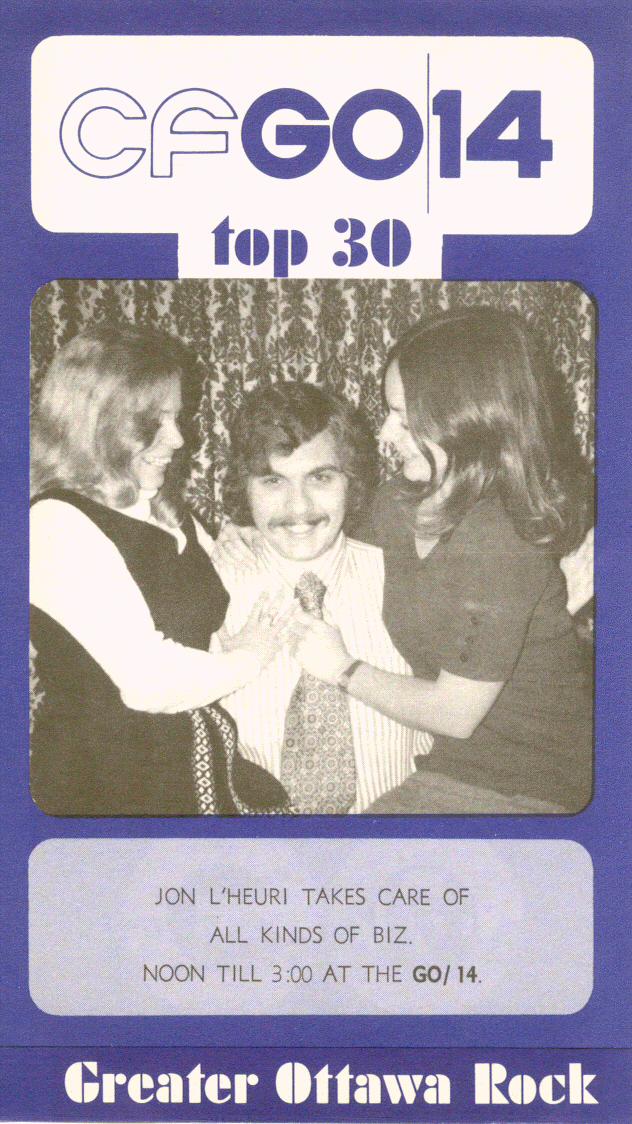
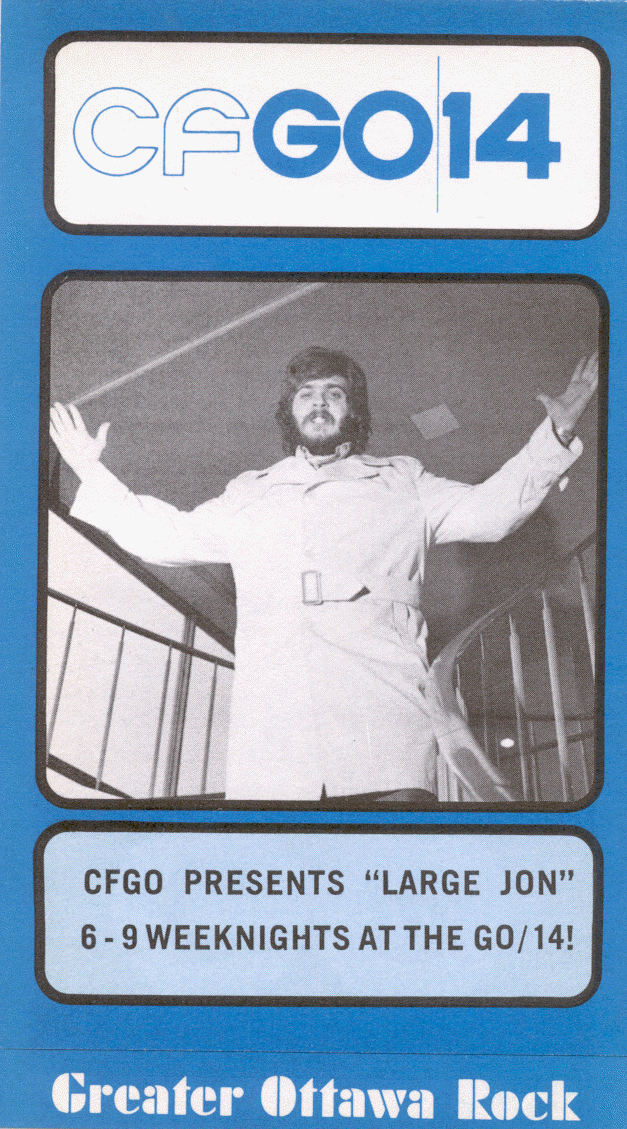
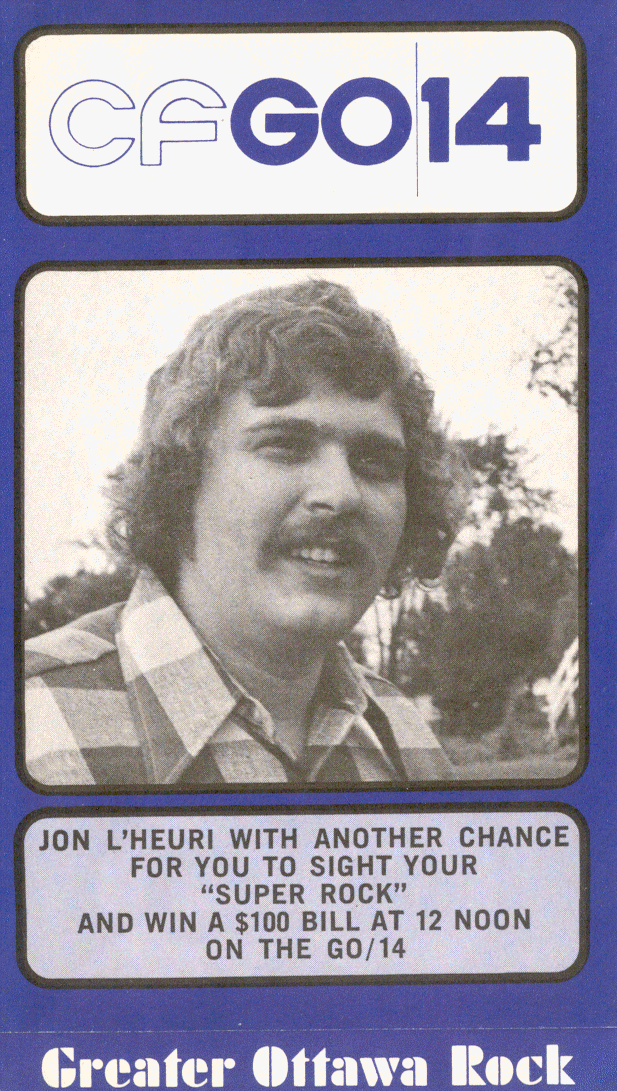
GS Have you stayed in contact with any of your co-workers at CFGO-AM.
HL Yes, I’ve stayed in touch with Paul Talbot, who worked news, and Gary Michaels, of course. CFGO-AM was a great time. I loved the station. I loved Ottawa. I
You had to be good to be on the air at CFGO-AM. The station was loaded with remarkably talented people. The format was highly structured and required precision, creativity and fun. Howard brought all three to the mike every day. On air and off, Howard was businesslike and fun.
Paul Talbot
Vice-president
Sporting News Radio
GS What happened to the job offer at CKLW-AM? After six months: did that come about?
HL The six months came and went. I was happy. I didn’t think about moving.
Eventually, CKLW-AM asked if I’d do weekends. I declined. I couldn’t make enough money, to live, just doing weekends.
More important, I love Ottawa. I spent six years at CFGO-AM, a few as assistant PD (APD), when Trudy Chamberlain was MD. Then I moved into concert promotion, with Bass Clef, and stayed, in Ottawa, a few more years. I love Ottawa.
GS Could we talk a bit more about Jim Jackson? He was PD when you worked CFGO-AM. What was it like working with him?
HL Jackson came from CKLW-AM. He knew his stuff, as much as CKLW-AM allowed him. After CFGO-AM, he joined Moffat Radio, in Calgary, for PM Drive on CKXL-AM. Today, he’s doing AM Drive, with Jenn George, at 89.7 Sun-FM, in Duncan, British Columbia, and has some ownership.
I got on with Jackson. Always tough on his on-air staff, Jackson wanted us to perform better, each day. The goal was right. Although he wasn’t much older than we were, he had more time in radio; much more top market radio station experience.
We, the on-air staff, were mostly wet behind the ears. We’d been in radio ten minutes and Jackson was hours ahead of us. He was a great PD.
Suppose you’re 21, doing a full-time shift, on a major market radio station. The 25-year old PD says you had bad day, for these reasons. Your fragile ego cracks.
Five years later, you’d say, “How do I get better?” It’s not the PD or his age. Experience makes the difference and leads to a career.
We had a good time. Jackson was a good friend. He taught every one of us much more than we’d admit, at the time.
GS Did CFGO-AM knock CFRA-AM out of top spot, in the Ottawa radio market?
HL No, that triumph was for CHEZ-FM, in 1987. CFGO-AM cracked the armour, of CFRA-AM. I like to think, we made the toppling possible.
GS Can you fill in the CHEZ-FM story.
HL A visionary, Harvey Glatt, is the root of CHEZ-FM. Harvey is eclectic. If everyone is here, he goes there. Won’t follow the crowd. Veers off, to follow his own path. Won’t trail the maddening crowd.
Harvey applied his vision to radio. In 1977, he founded CHEZ-FM. He hired the right people. He let them do their job. CHEZ-FM succeeded where others failed.
At least once, CHEZ-FM won the top radio station award, in Canada. In March 1987, the station seized top spot, in the Ottawa radio market, from CFRA-AM. The ratings were decisive. This loss began a long, long decline for CFRA-AM. Ottawa now moved to rhythm of CHEZ-FM. Magically, the ratings arrived on the tenth birthday, of CHEZ-FM, in the midst of the celebrations. It was a Harvey moment.
GS Why did you leave CFGO-AM?
HL I was happy, at CFGO-AM, for years. When we, the CFGO-AM staff, were new, it was the best. Every day, there was something new to learn or experience. The last eight months or so, I was unhappy. I didn’t sense I was learning or growing.
GS What changed?
HL Well, when Jackson left, the news director (ND) became PD. He was a great ND, but a little shy on PD role. When he asked me to help out, with the programming. I became APD, for a time.
When I was PD, at CHAM AM and FM (Rock 102), in Hamilton, Howard thought he stole a DJ from me. He put the DJ on over nights, at CFGO-AM, to learn the format. After a night or two, Howard sat down, with his new DJ, to go over the positives and negatives -- always start positive. There was a large ashtray, on the desk. When Howard started to talk about the negatives, the DJ slammed his fist on the desk. He yelled, "I knew it, all APDs are evil." When the DJ slammed his fist, on the desk, again, he clipped the overly filled ashtray, firing it into the air, causing the butts and ashes to snow down. Howard thought to himself, "Wood warned me."
Bob Wood
Broadcaster
Austin, Texas
When the PD left for CFRA-AM, I didn’t get his job. Yes, in a sense, I felt I’d earned the step up, but was willing to wait until next time. I thought I was all right until next time.
In the blink of a cosmic eye, I discovered I didn’t like the pass over. The workday got dark. The brilliant lights, of the early years, dimmed. I felt out of place, an old shoe.
At the time, I didn’t like the general manager (GM), at CFGO-AM. The GM oversees the radio station, as a whole. A good GM stays out of day-to-day decisions; his or her main role is developing policy.
I had quit, on this GM, once before. He called me, as APD, about a record the station aired. He didn’t like the record, “Jaws” by Dickie Goodman, for his own reasons. I didn’t care for the way he acted or how he interfered in on-air policy.
The GM wasn’t a radio person. Baton Broadcasting dropped him into CFGO-AM. This was his first job as GM. He headed personnel, at the Baton head office, before joining CFGO-AM. All these years later, I won’t tell you his name, only that he wanted to take records home, from the station library.
GS I wonder what he thought the station would air, as this was before digital.
HL What he thought was he knew all there was to know about everything and anything. His decisions showed he knew zero about radio. I’m not sure any one, at CFGO-AM, liked the GM.
Morale, at the station, bottomed. As a result, a great station, with a great atmosphere, tanked. Many staffers were looking for another job.
Let me get back to the incident. The GM calls me, bypassing the PD. “You know,” he says, “We’re playing [the Goodman record] once an hour?”
I say, as APD, “No; we’re not playing Goodman once an hour.”
Goodman did novelty records. This time, he was mocking the movie, “Jaws.” Novelty records might fit the CFGO-AM format, but carefully and cautiously. The idea of playing a novelty record once an hour is ridiculous; no assistant PD would allow it.
The GM persisted. “You are playing [Goodman] once an hour. I know it's happening. The station is annoying the audience.”
I agreed; playing Goodman once an hour would annoy the audience. “We’re not playing [Goodman] once an hour,” I said. “If you come to my office I can show you the rotation sheets.”
There were no computers, in radio stations, at the time. I had everything on paper. “Come to my office,” I said. “I’ll show you how the rotation works; how a record like this fits; what we do with it; how the philosophy works.”
Usually, I’m the most disorganized person, in the world. When it comes to radio, I’m the most organized person, in the world. I had it ready to go.
The GM says, “No; I don’t need to come to your office.”
I say, “How is it that you know about our use of this record? You can’t be listening every hour. Besides, we’re not playing Goodman every hour. Where did you get this notion?”
“My next door neighbour told me,” says the GM.
GS Now, that’s funny.
HL Yes, but it’s not right. I say, “What does your neighbour do for a living?”
“He sells insurance,” says the GM. “Why?”
I ask, “Well, is your neighbour thinking about going into radio?”
The GM says, “Why are you being a smart ass? What are you talking about?” He’s baffled. He doesn’t know radio. He doesn’t know his own station. He can’t understand, anything, it seems. He doesn't know how to respond.
I say, “If your neighbour is thinking about going into radio, there’s good news. An office, down the hall, from you, is now vacant: I’m out of here.”
I didn’t have any place to go. I came back. I left, for good, as fast as I could, though.
Felt right at home, in Ottawa, at CFGO-AM.
From the get-go, I liked Howard; not only as a witty, creative radio personality, but as a friend and co-worker. Matter of fact, when I was holding down the overnight shift, at CFGO-AM, Brenda and I were expecting our first child. Howard offered to come in and cover me, if the birth was during my shift. Fortunately, Kelly, our daughter, held off until a weekday afternoon before she made her entrance into the world. Howard was off the hook! A beauty of the crazy radio business is you build relationships and friendships that truly last a lifetime. I am proud to say that after 36 years, since 1972, Howard and I still stay in touch, though he's never mentioned if he misses the snowy, cold Ottawa winters.
Gary Michaels
GM and PD
CHIN Radio Ottawa 97.9FM
GS Maybe it was time for a break from radio. You had a long run, many good times and much success.
HL Maybe, Harold Levin and Harvey Glatt, who promoted concerts, in Ottawa, were my friends. We had worked together, for years and years. CFGO-AM sponsored most rock and pop concerts, in Ottawa.
When the problems, at the station, became too much, I asked if Bass Clef could use me. Harvey and Harold said yeah. I left CFGO-AM before the ink was dry on the Bass Clef deal.



GS I suspect Ottawa wasn’t much of a stop for major touring acts.
HL It wasn’t. There were concerts, with big acts, but sporadically. As the touring business grew, in the late 1960s and early 1970s, concerts called for larger and larger arenas or stadiums. Ottawa had small and medium-sized halls and arenas, but only one big, outdoor stadium, rarely used.
At Bass Clef, we made Ottawa an important stop. We opened two or three larger locations, and made it worthwhile, later, to build large concert sites. Much hard work created something out of almost nothing.
GS How did that change come about?
HL We found partners. Bass Clef worked with Donald Tarlton, known as Donald K Donald, in Montreal. Michael Cohl, in Toronto, with CPI, was also a partner.
cohl was valuable. He became one of the biggest promoters in the world, handling every “Rolling Stones” tour, since 1989; he had promoted “Stones” shows, in the 1970s. Now, he owns one-third of the “Rolling Stones.”
Bass Clef offered Ottawa as a routine stop between Toronto and Montreal. Ottawa was another date for Tarlton or Cohl to add to their dance card. The routing was easy. Ottawa is two hours, by road, from Montreal and four hours from Toronto.
An act could play Toronto, say, on Monday. Travel to Ottawa, for a Tuesday show, and, after the show, drive two hours to Montreal. The act had one less night in a hotel, and was fresher for a Wednesday show. The shorter hauls were easier on the crew, too. Ottawa made sense. Now, there were three profitable dates, in central Canada – Toronto, Ottawa and Montreal.
GS What particular acts were the easiest to work with and why?
HL There’s a question I never considered. It was always which acts were available, and willing. I don’t remember any act I couldn’t find a way to get on with, and profit.
I cleaned up, literally, after a many acts. We’re the ones left behind to fix the messes. That was a pain, but part of a wholly pleasurable business.
GS You promoted the “Eagles,” on 5 August 1978, I think.
HL Yes, that was at Rideau Carleton Raceway, in Gloucester, just south of Ottawa. We sold 25,000 tickets, on the first day. We crammed 50,000 people into that plot of land, now covered with slot machines.
At a party, after a show, I asked Michael Cohl how Ottawa might land a high calibre act, such as the “Eagles.” The city had no arena large enough to present a high calibre act and deliver a profit. Cohl mentioned seeing the Raceway when he flew into Ottawa.
What high calibre act to chase. We decided on the “Eagles.” “Hotel California” had just come out. The band was on a major tour, and date for Ottawa was open.
I talked with Glen Munroe, who ran the Raceway, at the time. Harold Levin and I checked out the property. We thought the “Eagles” would work. Munroe agreed. We booked the show.
Before a “Beach Boys” concert, I walked on-stage, supposedly to read a telegram. I say, “We just got a telegram, from a big name band. It reads, ‘We know big bands, like us, don’t get to play Ottawa, but we’d love to play Ottawa, on our new tour.” I paused, for a long moment, and say, “Signed the ‘Eagles.”
The Civic Centre erupted. Elvis played Ottawa, in 1958. Otherwise, the “Eagles” were the biggest show, ever.
GS Did you face any uniquely tough challenges in Ottawa?
HL Large events, such as the “Eagles,” were new to the Ottawa area. Many local politicians needed convincing. At least once, I was ready to cancel the show, let the media know where the responsibility lay and watch the fallout from the sidelines.
Bass Clef hired Howard, all those years ago, because he was in the forefront of show business marketing. He’s still the vanguard, and the perfect compliment to my approach. Bass Clef is always working with Lapides/Lear. To this day, Howard, is the brightest person in show business, ranking with Michael Cohl.
Harold Levin,
President, Bass Clef
Also, Bass Clef put Frank Clair Stadium, at Landsdowne Park, to good use. The Park is a huge area, in centre town Ottawa, which includes the Civic Centre, a smallish shed. The Park hosts the Central Canadian National Exhibition (CCNE).
The CCNE is a 10-day event, in August, which began as an agricultural show more than 100 years ago. Today, it’s the 10 days when the circus comes to town. There are rides, a midway and such.
Many tours played the Civic Centre, buts capacity, of 10,000 isn’t always profitable. The Civic Centre is good for WWE events. During the CCNE, Frank Clair Stadium, which seats about 15,000, was a showcase for top acts, say, Glen Campbell, in the 1970s.
The CCNE stadium shows were free. A ticket to the fair included the “Smothers Brothers,” for example, or Herb Alpert, in their heyday. The CCNE gave away top talent. It was ridiculous, crazy!
We, Bass Clef, made a proposal to take over the stadium shows. Tarlton and Cohl collaborated. Our idea was eight shows, over the ten days of the fair, featuring the biggest acts available.
The CCNE agreed. We booked only top rock acts. It was a long way from the family friendly bookings, of the CCNE.
The new approach was a huge success. The fans loved it. The CCNE made money, which was novel.
GS I suspect the CCNE wished you were still around.
HL I suppose; until this point, Ottawa wasn't a priority. There was much fan interest, but no profitable place for top acts. At Bass Clef, we worked to change the circumstances.
GS What unusual problems did you face, promoting top acts?
HL The day “Chicago” came to Ottawa was unusual. The crew arrives about 8 am. The crew chief looks at the stage and says, “No way,” threatening to pull the show.”
The crew chief says, “The stage is too small, in the back and the risers are too high.”
The outdoor stadium stage, at Frank Claire Stadium, is about ten feet high and sixty feet wide. There’s a cover for about three-quarters of the stage. The back, of the stage, has a 12-foot clearance. The cover is about 25 feet high, in the front.
The set up worked, well, for “The Cowsills” or Paul Anka. It was too small for “Chicago,” in 1979. This I learned the hard way.
The crew chief is railing on me, about the stage. “The specifications were in the contact,” he says. “This is too small. I’m pulling the show.”
It’s a sell out. "If You Leave Me, Now" is topping every chart. More than 15,000 fans expect to see and hear “Chicago” and Linda Ronstadt, in 12 hours. I danced. No one dances better than I. We find a way to make it work, if barely. The crew chief was a jerk about everything.
GS Does what goes around come around.
HL Yes, it does. Later in the day, the crew chief asks me for a favour. He asks for a favour, as if the early morning incident never happened.
GS What was the favour he needed?
HL Well, it’s in some contracts and not others. Mostly, he wanted a courtesy from Bass Clef. Sometimes, touring acts ask for part of the pay out in cash, on show day.
The act needs to pay the crew. Often, a crew is a ragtag bunch of itinerant workers. The act enters Canada or a region of the USA, and hires local labour. The crew comes and goes. They're here one day, gone the next. Cash is how you pay the crew or they vanish.
The crew chief, for “Chicago,” asked for $25,000 cash, in US dollars. When we booked “Chicago,” Bass Clef deposited partial payment. We paid any owing balance, to “Chicago,” after the show. In the afternoon, the crew chief needs $25,000 cash to pay the crew.
I go to the bank to get the $25,000. The bank didn’t balk. For a business, such as Bass Clef, a large cash withdrawal is common, no big deal.
Back at Landsdowne Park, I have a brief case, with $25,000 inside.
GS You’re in a bad gangster movie.
HL Yeah, I knew how to do my job. I wasn’t afraid. We, the crew chief and I, find a room to count the money. Now, he’s my best friend.
As I count out the cash, the crew chief rolls up his pants. On his legs are straps to hold the cash. He can move around, do his job and no one is any the wiser about the cash.
The straps are not a bad idea. The bad idea is doing it in front someone you po’d, deeply, a few hours ago. This is my town. I know people.
GS Does a fantasy slip in here.
HL Sure, I call a friend, who knows other friends, and say, “Want $25,000 USD?” It’s only a fantasy, of course, but what if I didn’t come from a good home, with great parents, or I had a vengeful streak.
GS Fortunate crew chief, I’d say. What did you take away from your time at Bass Clef?
HL From Harvey Glatt, t I learned to avoid the herd mentality. Harold Levin opened a different side of the business to me. What I learned at Bass Clef stays with me.
Harold revealed the business side of show business. He taught me the importance of finance and money movement. Harold drove home the need for meticulous accounting.
As a DJ, I couldn’t balance my cheque book. More than once, I left the bank, on payday, with fifteen cents to my name. I had lots to learn and Harold was the best teacher.
At Bass Clef, I learned about hiring and using caterers. I learned how to get last minute dry-cleaning done. I learned not to worry about carrying towels backstage or doing menial tasks, as necessary. I learned the point is to produce the show, whatever it takes.
From both Harvey and Harold, I mostly learned how to be honourable, in the face of misfortune, and always be honourable.
WBEN AM and FM
GS You left Bass Clef in 1980, I think.
HL I moved back to Buffalo from Ottawa on 11 February 1980. My dad was sick. I went home and worked the family business, for about a year, until he passed away.
Then my brother, Jeff and I went into the low-cost long-distance phone call business: Callex, selling a service, “Budget Call.” It was too corporate, for me.
I was away from radio. I couldn’t breathe in that corporate world. I wasn’t good.
GS How did you work your way back to radio?
HL All through the Callex time, I knew I had to find something in show business. I ran into Larry Levite, who had been sales manager at WYSL-AM, when I was on air. Now, he owned WBEN AM and FM, in Buffalo.
WBEN-AM went on-air in September, 1922, as WMAK-AM. New call letters came into use, in 1930, when the "Evening News" bought the station. The calls stand-for W, which the FCC requires, B for Buffalo and the EN, for the "Evening News." Jack Parr worked WBEN-AM, before joining the Army, for World War II. It might not be rock and pop radio, but a great station to work.
GS Interesting about the call letters. Any other examples come to mind?
HL Sure, WKBW-AM, also in Buffalo, is Well Know Bible Witness. WLS-AM, in Chicago, is World's Largest Store. CFRA-AM, in Ottawa, is C, which the CRTC requires, Frank Ryan Associates.
GS Back to WBEN AM and FM.
HL I asked Levite if he had any on-air work for me. “Money doesn’t matter,” I said. “I want to get back on the air, doing something, anything.”
He says, “Call Bob Wood. Here’s the phone number. When you call, I’ll have talked with him.” Wood was PD at WBEN-AM and FM.
I tried to get a hold of Wood. He’s evasive. It took me a week to see him. I was a minute shy, of calling Levite to ask what was up, when Wood calls.
Wood and I meet. It turns out this is the same Bob Wood who programmed, in Hamilton, when I worked CFGO-AM. We hadn’t met. We knew of one another.
Our meeting is a Samba. Bob is territorial. He’s concerned. I know Levite. I may want to work WBEN AM or FM to take his job.
His job is the last idea, in my mind. I wanted weekends, anything, to get back on the air. I tried to explain.
Wood says, “I know you from Canada. I know what you’ve done. I know what you can do.”
I said, “Take a pill, please. I’m not after your job. I want back on the air; that’s all.”
Eventually, I satisfied him about his job security. I had worked WYSL-AM, using the name Michael O’Shea. Michael O’Shea was back on the radio in Buffalo.
Howard was the maestro of the "Buffalo Bills Postgame Show." He orchestrated caller opinions, without once giving his own. He played both sides of opinion, masterfully, against each other, for maximum effect.
Bob Wood
Broadcaster
Austin, Texas
Finding the Right Name
GS Where did the name, Michael O’Shea, come from?
HL Michael O’Shea was one of my radio alter egos. I had used Jay Richards, Jon L’Heuri and, of course, “Frogman.” Michael Spears, at WYSL-AM gets credit for my O’Shea alter ego.
At WYSL-AM, when he hired me, in 1969, Michael Spears says, “Come with me.” We go to another room. He asks, “Do you want to be Michael O’Shea or Roger Christian?”
“What are you talking about,” I say.
Spears says, “I had extra DJ ids [recorded]. One is for Michael O’Shea. The other is for Roger Christian. Take your pick.”
I figure I should take O’Shea. I’m a Jew. Christian might have some issues attached. Now, I’m Michael O’Shea, on WYSL-AM.
GS That’s an interesting tale.
HL Yes, Michael O’Shea appeared in 1969. I did three summers, at WYSL-AM, and fill-in work over holidays and everything, as O’Shea. All this time I was going to school, in Boston, working weekends, as Jay Richards.
GS You don’t use O’Shea, anymore.
HL When I went to CFGO-AM, I told Jackson I wanted to drop O’Shea and start something new. He says, “Take the weekend. Think about a name. We’ll go over your list on Monday.”
This was Friday. I wanted to invent a new DJ brand, for CFGO-AM. I bust my mind, looking for a brandable name.
Monday, I meet with Jackson. Before we get going, he says, “Geez, yesterday, we had Charlie Van Dyke cut DJ ids. We cut your name as John Laurie.”
I didn’t understand, and said so. “How do you spell that name,” I ask.
Jackson says, “L’Heuri – l-apostrophe-h-e-u-r-i.”
“What kind of name," I say. Jackson says, “It’s French Canadian. Our research says the name works, in Ottawa.”
I didn’t know everything that was going on, but I knew he didn’t have any research. It was first time anyone mentioned research. I asked for more explanation.
Jackson says, “Our research says [sic] most overnight listeners, in Ottawa, are French Canadian. We want to give the station a little French Canadian flavour.”
I said, “Let me get this straight. You want the overnight DJ to be the French Canadian, at the station. You want me, a Jew, from Buffalo, New York, to carry the French Canadian banner for the station?”
Jackson says, “Yeah!”
I say, “Ok, but I’m going to make it Jon, not John. Drop the H, in John.”
Jackson agreed. I don’t know why I forced dropping the aitch. Guess I needed some control over my career.
Later, I became Large Jon L’Heuri because I was trying to brand the name. I thought, on its own, Jon L'Heuri was a difficult name. I tried what I thought was right to make it easier to grasp.
GS Obviously, your instincts were good; the name worked, well.
HL I lived with the name. I became Jon L’Heuri. Right through my career in Ottawa radio and at Bass Clef, I was L’Heuri. I’d answer to the name.
The name, Jon L’Heuri, was everywhere, except on my credit card, bank statements and driver’s licence. This was good. I had some anonymity.
GS That’s the other side, yeah. I see that.
HL I went back to Buffalo, in 1980. Now, the Bob Wood story curls up. At WBEN-AM, I was able to recreate an alter ego, Michael O’Shea.
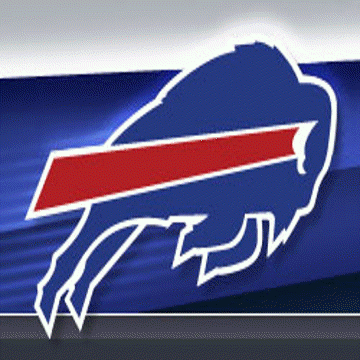


Buffalo “Bills” Postgame Show
GS How did the Buffalo “Bills” postgame show come about?
GS Stan Barron worked Buffalo radio, for decades. He’s a legend. When I landed weekends, at WBEN-AM, Barron was doing a sports-talk show, weeknights. He'd always sign off, "This is Stan Barron saying goodnight and remember ... be a good sport."
Five nights a week, on WBEN-AM, Stan Barron (below) talked sports for five hours. He could wax for ten minutes about sports. No phone calls, only him talking. He’d talk, run a few commercials and talk more, but never took calls. Remember, this is five nights a week, for five hours – 25 hours a week. (Left, Stan Barron, on WBEN-AM, about 1979. click to enlarge.)
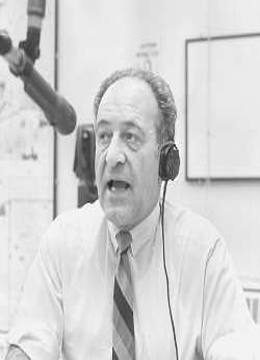


By 1981, Barron was elderly. His health was failing; more and more he was off sick. Wood asks me to fill in for him.
What a challenge. I often did twenty or twenty-five hours, of sports talk, a week. It was fun to stretch out, and grow my career, but hard work, and I took calls.
Filling in for Barron grew into the Buffalo “Bills” postgame show. That show was tons of fun, a riot. The postgame show was the most fun I had in radio, in the sense that it was true fun.
The good times reflected in the ratings, which were huge. It wasn’t only me. The fun, the success having fun, was that Buffalo lives and breathes the “Bills.”
GS Fun and success usually mean great stories. Can you tell me one?
HL On Monday nights, WBEN-AM had whoever was coaching the “Bills” take calls and talk, with fans, for an hour. The station got “Coach Time,” which was great for sales. The Sports Director (SD) co-hosted, with the coach. It was an arrangement, to keep morale up.
After the coach show, Jim Haslett and Fred Smirlis, two football players, also talked sports for an hour. Most recently, Haslett coached the St. Louis “Rams.” Smirlis is in Boston.
One Monday, Wood says, “Can I fill in on the coach show and with Haslett and Smirlis?” Some flu was going around, the station short-staffed. I agreed.
The coach show goes fine, but Haslett and Smirlis arrive, shall we say, tipsy. I didn’t like it. Do the job. Drink, afterword, if you wish.
We’re halfway through the first part; I’m thinking, “This sucks. I can’t control these galutes. It’s terrible. It’s bad radio.”
I’m trying to get a grip on Haslett and Smirlis. I’m trying to steer the show. They’re all over the place, saying callers are idiots and carrying on.
As the show moves, slowly, toward the end of the first part I’m po’d. When we go to commercial, I go after Smirlis; verbally, of course. He looks at me, strangely, and says, “Why the hell did you say that?”
What I said was, “What, if tomorrow, I show up at football practice. I’m dressed like a player. I run around, thinking I’m a player, disrespecting other players. I line up in front of you. Someone gives me the ball. What would you do?”
Smirlis looks at me, again, and says, “Ok, we’ll behave.”
GS Was your rebuke on the air.
HL No, we were off-air. What I said, on air, was worse. I can’t recall the exact words, but I pummeled him. I went into the way he played the previous day. I did everything. I just was so po’d.
At one point, I lost control. They were on my playing field. There was no way either of them was going to get away, with anything, on my show.
GS Good radio trumps the sports fanatic, if you’re not playing bridge.
HL I never pretended to know anything about football. Callers screamed at me how, “How did you get the job?” I’d say, “Because you didn’t, and I’d hang up.” Listeners took the show too seriously. Callers would rhyme off numbers and I’d say, “I don’t care, and hang up.” This was part of the fun.
It was a take-no-prisoner show. The way I responded to Haslett and Smirlis was in line, with the show. I take no prisoners when it comes to radio.
GS Can we go back to the Barron Show.
HL Yes, after filling in for Barron, for a while, I got the rhythm, of the show, down. Some humour was necessary, tongue-in-cheek comments and such. As well, the show had to work in many ways, at the same time; listeners found their level, and heard what they wanted to hear. It took me a while to figure that out.
Thereafter, during any 20-minute part, of the post-game show, I aimed for a mix of callers. I had great producers, at WBEN-AM, who screened callers, for me. They knew exactly which ones to let on air.
GS What was your idea mix of callers, on this sports talk show?
HL First, I wanted two decent callers. I would want maybe one or two drunks, depending on the day. Finally, I wanted an average caller or two.
I saw the callers as records. I programmed the hour as if records, not callers. After all, that’s what I knew. Callers are “props.” I figured I’d schedule callers the same way I played records, another prop, at CFGO-AM.
GS That is an interesting approach.
HL It worked, well.
The End of a Radio Career
GS Why did you leave WBEN-AM and sports talk?
HL While I worked WBEN-AM, I managed comedians and ran comedy clubs. For a while, I got away managing from Buffalo, knowing it would catch up to me.
You can’t do everything by phone or fax. Who remembers faxes? Los Angeles is the hub of the comedy business. I reached the limits of the phone and fax, quickly.
A move to Los Angeles was unavoidable. I came to Los Angeles, a few times. I liked it. My decision, to move to LA, sealed when I met someone from KFI-AM.
At the time, KFI-AM aired the Los Angeles “Raiders” games. This fellow had read an article about the Buffalo “Bills” postgame show I did on WBEN-AM. That show had great ratings and everyone, in the NFL, talked about it.
This fellow says, “Do you want to do the same type of show for the ‘Raiders’?”
I thought it would be great. “Let me get moved, to LA,” I say, “and we can talk about the show.” The money was good, which is unusual for radio; my interest was high.
I moved. We met. It was informal. We agreed on show content. We shook hands. The deal was made.
As we’re walking out, the fellow, from KFI-AM, says to me, “Thank gawd we got a ‘Raiders” fan doing the postgame show.”
I say, “No! I’m not a ‘Raiders’ fan. In fact, I hate the ‘Raiders’.”
He almost fell over. I say, “Follow me; here’s the way we’re going to do it. I’ll polarize ‘Raider’ fans, against me. By the second show, you'll need security to get me out of the building. Ratings will soar.”
I explained the idea, in detail. Anti-Raider character, as host, with calls picked to fit the strategy. “Make listeners fight for their team,” I said.
KFI-AM fellow says, “Can’t do it. Al Davis won’t allow it.” Davis owns the “Raiders.”
I say, “Let me sell it to Davis. It’ll sell game tickets, the fans will want to kill me. They’ll hang me in effigy. This approach is good for the team.”
“No, no,” he says. “Can’t you fake the show? Pretend you like the ‘Raiders.’
I tell him it won’t work, any other way. I can’t pretend. We parted friends.
That was the end of me doing football shows.
Funny Business
GS What led to Lapides Entertainment?
HL After we sold Callex International to ITT, my brother, Jeff, put together an idea for sports bars. Harold Levin, of Bass Clef, invested in sports bar. I called him for advice.
Levin says, “No, don’t do sports; do comedy. Levin was doing comedy, in Ottawa, with “Yuk Yuks,” and doing it well.
I love comedy. I owned a comedy club, with some partners, in the early days, when I worked Bass Clef. We had a club, “Andy and Flo’s,” in Ottawa, but blew it.
We didn’t know what we were doing. Opening weekend, of that first club, we booked Howie Mandel, who now hosts “Deal or No Deal,” Jim Carrey, Bob Sagat and others. Mike McDonald, another well-known comedian, performed the first weekend, too.
It was an exceptional weekend. The line-up was great, but everyone was starting out, including us. By the second week, the club started to go downhill. After five or six months, I got out of the business: it just didn’t work.
GS Not a fair start.
HL I love comedy, though, and wanted to stay a part of it. “Yuk Yuks,” a Toronto-based string of comedy clubs, was looking to expand and wanted a US partner, and I said, “I’m your guy.” Jeff and I negotiated a deal for two “Yuk Yuks”: one in Buffalo and one in Rochester.
We’d book an act into one of the clubs, say, Buffalo. Then we’d lend him or her out, to a conference or special event, for one or two nights. This helped keep our costs down and gave the comedian more exposure.
The idea worked, for a while, eventually paring down to the Rochester club. I was running the club, from Los Angeles. I had a great manager, on-site, but it wasn’t working.
In 1989, I told the manager to make sure all the bills paid. Make sure everyone is fine. Then shut the doors in Rochester. Given what I was doing, in LA, the last club was too much to fret. It was a drain.
GS How did the clubs help get you where you are now?
HL What the clubs gave me was a beginning. Clubs got me close to the comedians. I realized I liked working, with them. I love the literature they do and the performance part, too. I wanted to be part of it.
I was never a stand-up. I couldn’t do it. I'm the fellow, at the back of the room, watching closely. I became better and better, at what I do, along the way, but that's how it started.
I signed a few comedians, thinking I had nothing to lose.
GS Who were your first clients?
HL I bought four Canadians to the USA: Mike McDonald, Pat Bullard, Howard Busgang and Norm Mcdonald.
Mike McDonald remains a popular comedian. Bullard hosts “Here Come the Newlyweds,” on ABC; he also wrote for “Roseanne” and executive produced “Reba.” Busgang writes and produces television; he worked on “Sophie,” “Read the Signs” and “Single White Female.” Norm Macdonald was on “Saturday Night Live,” for a while, and had his own sitcom, “The Norm Show,” on USA.
First off, I collaborated, with Rick Bernstein. The company was Bernstein Lapides. We had a solid five-year run. Rick got pancreatic cancer, quickly passing away.
In the 1980s, I signed a pile of comedians, and put them on the road. They did a week here, a weekend there, with maybe an occasional one-night stand. We made money.
Entertainment is cyclical, as is every business. By the early 1990s, the roadwork began to wane; I had to reinvent my business. Radio came to the rescue.
I heard Dr. Drew Pinsky, doing “Loveline,” on KROQ-AM. His show was one night week. I had to meet him, and did.
If there was no Howard Lapides, there'd be no Dr. Drew, period; end of story. He flushed me out, one evening. I'm so grateful. I had no idea who he was or what he was talking about. He offered his services saying, "I want to help you out." We shook hands and Howard started working, hard, on my behalf. No money changed hands, for years. I benefit greatly, from his vision. I rely on him to make the right call, which he always has for me.
Dr Drew Pinsky*
Host of “Celebrity Rehab,” “Sober House,” “Loveline”
I convinced Pinsky I could further his media career. That was 18 years ago. We’re still moving forward.
Pinsky was a doorway to the on-air talent at KROQ-FM. I picked off talent, moving them from radio to television. One of the first I moved was Carson Daly. He’s hosted “Total Request Live” and “Last Call,” on MTV. That show is now on NBC as “Last Call, with Carson Daily.” Adam Carolla and Jimmy Kimmel did 94 episodes, of “The Man Show,” from 1999 to 2003.
GS How did the “Man Show” come about?
HL I was managing Jimmy Kimmel, in 1998. He was doing sports, during AM Drive, on KROQ-FM. He was also writing. Kimmel is a superb writer.
I was sending him on general meetings. Kimmel needed to meet several men and women, in the industry. The goal wasn’t to get the work he auditioned for, but for him to get known.
If talent is to succeed, they need to tour. They can tour the country or the town. Kimmel toured the town, Los Angeles.
I sent him out for a daytime, female-focused show. After the meeting, he called. He was livid.
“I hated the idea,” he said. “There no way I’d ever do this kind of show. These shows are terrible. I can’t be involved in anything like this. Please never do this again. Please don’t send me out on anything like this show, again; these Oprah-type shows are awful. I think we should do a show just for men.”
I say, “Write it up, a version, of these shows, for men.” He did.
Kimmel wrote a great one-page idea for “The Man Show.” I sent it to his agent, at William Morris, adding, “Let’s make it work.”
Kimmel and Adam Carolla made it work. “The Man Show” ran six seasons, on Comedy Central. It might have run 10 seasons.
Joe Rogan and Doug Stanhope did the last season, of “The Man Show.” Kimmel and Carolla went looking elsewhere. Rogan and Stanhope were good, but the show was Kimmel and Carolla: they were so damn funny.
GS You were executive producer, of “The Man Show.” What does an executive producer do?
HL The executive producer puts the deal together. He or she finds the financing, oversees hiring the main talent. The executive producer is the critical organizer.
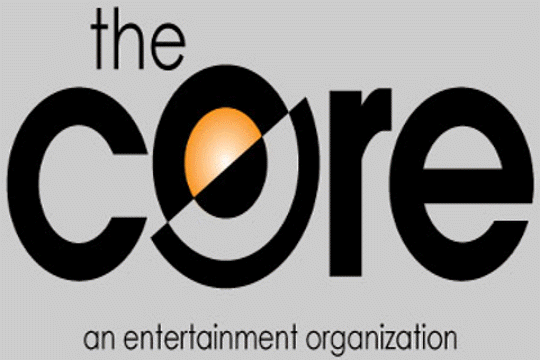
The Core
GS Now, you’re in business, with rock and roll legend, Bill Siddons.
HL Yes, he’s doing it right and doing it to this day.
GS The mix is interesting, comedy and music.
HL I was doing, what I was doing, and it was going well. Still, my company had no music focus or radio division. I was all comedy and television, my company wasn’t full-service. I thought music and radio were essential for the long-term.
One night, in 2004, Siddons and I are backstage, at “Politically Incorrect.” His wife, comedian Elayne Boosler, was doing the show, hosted by Bill Mahr on ABC. I was there was with Adam Carolla.
Siddons and I got talking. We started having lunch, planning a big idea. The result was The Core.
I've worked with Howard Lapides for the last five years, as his partner at Core Entertainment. I helped him discover he missed his calling, and should have been a storyteller. Actually, that's probably why he talks about his radio days a lot! Working, with Howard, I discovered he's consistently fair and open-minded, and is a great partner. We have a great time together, and a good run. Howard has a fabulous instinct for what people are interested in, and what buyers will buy. He saved me countless hours working on projects that would've never yielded a result. He consistently makes me laugh, and is afraid of nothing. What could be better?
Bill Siddons,
co-founder, The Core
What’s it like? I’m from radio. I promoted rock and roll concerts. “The Doors” are a part of my life. This is la-la land, come true.
Siddons was active when Laurel Canyon was Laurel Canyon. He managed “Crosby, Still and Nash,” “Poco” and “Jackson Browne” as well as “The Doors.” To have Bill Siddons around is just great. He adds so much to everything we do.
GS He completes the picture.
HL Yes, and it’s workable, it’s great. We also made a major change, recently. Lapides/Lear is now the television and comedy division of The Core. Andrew Lear is President. I’m CEO.



GS Fred Silverman (above) is an associate, you said.
HL Oh, gawd, yeah, I’m fortunate he’s a friend. I collect television network presidents, after they leave the network. Fred, of course, ran all three networks. Tony Themopolis headed ABC. Jamie Tarses (below, left) ran ABC and NBC; Kim LeMasters headed programming at CBS and Tony Themopolis (below, right) is important to what we,I, do.
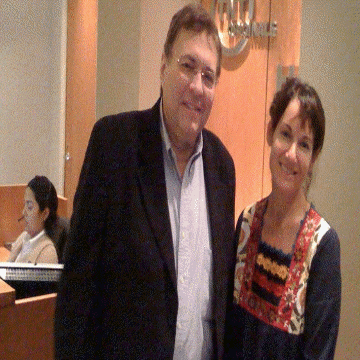
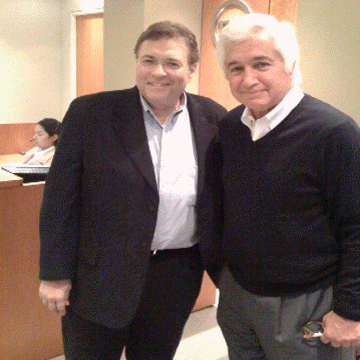
GS Good people to know, but do you wish the timing, of your friendships, was different?
HL Yes and no, it’d be great to have a friend, who headed a network. Still, Fred, Tony, Jamie and Kim are great, great friends, any time, away from business or not. Maybe best to have a friend, first, and if we can help one another, in business, that’s a bonus.
GS Can we go back to Fred Silverman.
HL Working with Fred Silverman is spectacular. When I met him, he was teaching a course at the University of Southern California (USC). When he told me, about the course, I asked if I could sit in, sometime.
Silverman says, “Why would you want to sit in on my class?”
My response was, “I want to hear what you have to say.”
Silverman says, “Why don’t we keep having lunch, instead?”
The honour to pick-up the phone and ask Fred Silverman if he wants to have lunch is incredible. He was the youngest head of television, at any network. He was on the cover of “Time” magazine.
Howard has an amazing, encyclopedic knowledge. of the business. I've been in [show business] almost 50 years and can still learn from him. He sure knows his way around. Thanks to his contacts, I no longer get seated next to the kitchen, at The Palm. I now have preferred seating in the men's room. In spite of this, Howard is a dear friend and occasional business associate. We've worked on quite a few projects together and had a hell of a lot of fun. Nothing on the air yet, but there's always tomorrow. I figure 2011 is the year for our big score ... maybe a development deal at the Tennis Channel or, even better, a script at Telemundo! I can dream, can't I?!"
Fred Silverman
President
Fred Silverman Productions
HL Silverman is the only person to head television programming at ABC, CBS and NBC. “All in the Family” launched on his watch at CBS; “Roots” and “Charlie’s Angels,” on ABC. At NBC, he launched “Hill Street Blues” and the “David Letterman Show"; rebuilt the moribund news division and started the FM Radio Group.
When Silverman ran the traditional networks, he knew the programming grid, for all three. Today, he knows the grids for all the cable channels, too. To this day, he lives television programming. It comes naturally to him. He understands everything that’s happening, in television, today, and where television is going. Ten years ago, Silverman was telling me exactly what is now happening; today, he’s telling me about television in 2020.
GS How does The Core work?
HL First, let me make the distinction between manager and agent clear. The talent, the actor, comedian or musician is a company. The manager is the CEO, of the company. He or she is closest to the talent.
A manager ensures the talent exists as a business, not loose cannons. An agent is the sales unit. Lawyers handle contracts, for example. The business manager focuses on investments, taxes and so forth.
There was a time, a hundred years ago, in a less difficult era, when someone wore all the hats. Today, the business is complex and complicated. A different woman or man fills each supporting roles. A manager coordinates the business. The talent is free to create.
In a cutthroat, take the money and run industry, Howard has incredible integrity and staying power. He recognizes talent. He knows all sides of every deal. In a fake town, he’s the real deal
David D'Arcangelo
D'Arcangelo Communications,
Boston
GS Where do you find clients?
HL We look for talent anywhere, everywhere. In comedy clubs, we find actors, not only comedians. Actors work up 8-or-10 minute set. They need to attract attention. The comedy set does it for them. They walk the set through all the comedy clubs.
GS Doesn’t this dilute the purpose of comedy and comedy clubs?
HL To an extent, I think, but not fully. Actors put much effort into their sets; they don’t work down. Portraying a comedian is a role for them. Actors are never as good, at comedy, as are full-time comedians, but they can play the role, for a few minutes, on a few nights.
GS What does The Core look for in a talent?
HL We’re a stable company. We’ve been around along time. We’ve a strong sense of family. If a talent doesn’t fit our family, as we see it, we don’t, we won’t, sign her or him.
I could go on and on about what it means to me to have The Boss, as I call him, guide my career. I can tell you Howard was the first man other than myself to see my first-born child in the hospital four years ago. That meant a lot to me. I'm not earning Howard millions of dollars or anything close, but for a manager to get in his car and drive over the hill to Cedars-Sinai Hospital, to welcome me into the fatherhood club, meant the world to me. The thing is when you're with Howard it isn't a business relationship ... you're part of a family. That's never going to change. The best way I can sum up my loyalty to Howard is this way: I had a great uncle, Happy Maione, who was a hit man for Murder Inc., run by Meyer Lansky. Maybe that old-school stuff is still in my blood. Maybe I got some deep-routed belief that behind every tough Italian is an even smarter Jew. Maybe Lapides is my Lansky. Works for me.
AJ Benza
Writer,
co-Host, of "High Stakes Poker"
We need to know we can make the talent a business. He or she has to work hard. We sign talent, with potential on several levels. Maybe she or he does stand up, today. We need to know if the talent extends to other areas, such as television, movies, books, radio and so forth. If there’s obvious breadth and depth, we may try to sign the talent.
GS Anyone, in particular, you’re looking at now.
HL Ellyn Daniels is a possible sign for Lapides/Lear. We’re still thinking about it. She’s 6 foot tall, with the body of a dancer and is model gorgeous. In her stand up, she immediately goes off type, on to the high wire; she thrives on taking chances.
Radio Today
GS Do you miss radio?
HL Yes, but not as much as I'd like you to think. Creative fulfilment takes many forms. Radio is one. Promoting rock and roll concerts is another. Building a career, for talented women and men, is yet another creative expression.
GS What’s your take on radio today?
HL Unfortunately, from top to bottom, radio is terrible. Staff cutbacks severely limit creativity. Rolling records and spots, airing ten traffic checks an hour and a minute or two of news only takes you so far.
creativity keeps listeners coming back for more, and listening longer. There’s no money, in radio, when listeners drop in, for a moment, and drop out. They might come back, in an hour, but maybe not: there are too many stations programming the same way.
Stribg>GS Do you think the way the industry is organized now, when one company owns 1,400 stations, is less effective than when much smaller companies owned many, many fewer stations?
HL There’s too much consolidation. Not long ago, if we were up against a radio station, we’d go full tilt against that station. We’d send black wreaths to the PD saying, “You’re dead; we’re going to get you.”
We’d beat the competition, with mind games. We’d beat the competition, on the air. We’d beat the other stations, every way possible. We’ll be the best, and we’ll go after the competition, hard.
Today, with consolidation in ownership, the competition might be down the hall, under the same roof. Ownership won’t allow all-out competition among its units. Instead, owners want to get the largest audience, across all its stations in a market, and for the least effort.
GS A mediocre blandness is unavoidable.
HL Yeah, all the money is falling in the same pocket. This limits the need to compete. Working radio, in this way, reduces the talent pool and an urge to win.
GS Earlier, you said the Ottawa radio market had grown complacent because CFRA-AM was so far ahead, for so long. The other 12 stations had forgotten how to compete. This gave CFGO-AM an opening and, eventually, enabled CHEZ-FM to toppled CFRA-AM.
HL Yes, but don’t get me wrong. There are people who do great work. I’m thinking of Shadoe Stevens; Bill Handel, and Kennedy (Lisa Montgomery Lee) on KFI-AM, in Los Angeles; Kevin and Bean, on KROQ-FM, in Los Angeles.
Unfortunately, I know top DJs, everywhere, are having their pay cut. Yes, the top one per cent, of on-air radio talent, those making the biggest bucks, are having their salaries cut. Radio GMs seldom top the list of quality managers, but this is one of the worst mistakes possible.
Radio is losing critical talent. Many top DJs have a manager. She or he convinced them to sock away money or invest wisely, for a rainy day. Now, it’s pouring rain, with no end in sight. All appreciate the advice.
These DJs retire early, move to television or go into another line of work. They have financial padding. They do what they want.
New talent loses two ways. One, their pay is low. Two, there are fewer role models, no top DJs for newbies to listen to and learn from.
GS How do you think radio might turn around?
HL Complacency seems most pervasive among managers and owners. Management must listen to their stations. Gordon McLendon listened to his own stations, incessantly. So, too, Mac Richmond; for all his idiosyncrasies, he was able to make something out of almost nothing. Bob Wood was always listening to his stations and the competition; Jim Jackson, too.
Know your product. Know the competition. This is how to make great radio.
Increasingly, I hear of station managers or owners who don’t listen to their stations. They go to work, in the morning, run some Excel “what ifs.” After lunch, they head out early, to beat the traffic or play a round of golf.
GS Some great media thinkers claim radio is dead.
HL Radio is not dead; it's not even on life support. Fifty years ago, television was going to murder radio. The medium grew bigger than ever.
A few years ago, satellite radio was going to end terrestrial radio. The two satellite services, XM and Sirius, had to merge to keep that model going. We now hear Sirius-XM is on the verge of going broke.
Supposedly, the web is going to kill off traditional radio. No it isn’t! Web stations increase the competition, but the cream always rises to the top. Well-run stations, terrestrial, satellite or Internet flourish and prosper.
A while back, the promise of digital-cable television was the new answer. You like aerobics; you get an aerobics channel, 24/7. Few specialty channels make money. A channel for one person isn’t possible. Lately, the digital channels have been going off-air, faster and faster.
GS What about alternatives to radio, such as the iPod?
HL Another reason traditional radio survives is the iPod. Everyone has an iPod, but where you find out about music? Do you scroll through iTunes, listening to every sample? No, you don’t. You turn on the radio. This is what everyone does.
On the radio, a DJ plays music and tells you about it. When a DJ has freedom, he or she makes the music exciting. The point is radio is an important source of information about music, about everything, all the time.
DJs are friends. Whom do you ask when you need to know? Who are you most likely to believe? A friend, always, is our first and most reliable choice.
When a familiar DJ plays music, you listen and learn. At that point, maybe you buy it for your iPod. Maybe you listen to it on the radio.
Once you find out about music, an iPod gives you autonomy. You can hear what you want, when you want. You can build playlists and repeat patterns. What an iPod can’t do is present new or different music to you. Only radio can do that.
GS In a word?
HL Radio success, yesterday, today and tomorrow, calls for free-wheeling imagineering. Where is Stan Freeberg, when you need him? The glory days of radio are yet to come.
GS Thank you.
-------
* Drew Pinsky, M. D., is Assistant Clinical Professor of Psychiatry at the Keck School of Medicine, University of Southern California, and Medical Director for the Department of Chemical Dependency Services at Las Encinas Hospital, Pasadena, CA.
click here to read the second Grub Street Interview with Howard Lapides.
click here for a list of all Grub Street Interviews.
Interview edited and condensed for publication.
Christine Grail, aka the Script Consultant, is a Los Angeles-based writer.
Click above to tell a friend about this article.
Recommended
- David Simmonds
- From Boil to Simmer
- I Resign
- The Genealogy Pit

- Sjef Frenken
- Pushing Envelopes
- Dumb Whales
- Where There's a Will

- Jennifer Flaten
- Field Trip
- Forlorn Phone
- Let it Snow

- M Alan Roberts
- Fired Up
- Paint My Face Red
- Revolution Calling

Recommended
- Matt Seinberg
- Roadies
- Pizza: NYC or Chicago
- My 2016 in Review

- Streeter Click
- Real Don Steele KTNQ-AM
- What is Journalism
- The Cute Beatle

Recommended
- AJ Robinson
- Scooby Science
- The Snowball Fight
- The Cabinet

- Jane Doe
- Ex Machina
- Char-broil 480
- Best of Enemies

- M Adam Roberts
- The Builder
- Running Man
- Dream On

- Ricardo Teixeira
- The Future
- The Unicorn
- Monkey Business




